effective altruism
description: a philosophy that uses evidence and reason to determine the most effective ways to benefit others
54 results
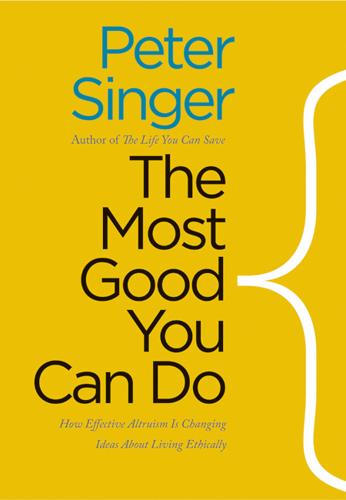
The Most Good You Can Do: How Effective Altruism Is Changing Ideas About Living Ethically
by
Peter Singer
Published 1 Jan 2015
Living a minimally acceptable ethical life involves using a substantial part of our spare resources to make the world a better place. Living a fully ethical life involves doing the most good we can. Although the people most active in the effective altruism movement tend to be millennials—that is, the first generation to have come of age in the new millennium—older philosophers, of whom I am one, have been discussing effective altruism from before it had a name or was a movement. The branch of philosophy known as practical ethics has played an important role in effective altruism’s development, and effective altruism in turn vindicates the importance of philosophy, showing that it changes, sometimes quite dramatically, the lives of those who take courses in it.
…
Library of Congress Cataloging-in-Publication Data Singer, Peter, 1946– The most good you can do: how effective altruism is changing ideas about living ethically / Peter Singer. pages cm. — (Castle lectures in ethics, politics, and economics) Includes bibliographical references and index. ISBN 978-0-300-18027-5 (cloth : alk. paper) 1. Altruism. 2. Ethics. I. Title. BJ1474.S56 2015 171’.8—dc23 2014035965 A catalogue record for this book is available from the British Library. This paper meets the requirements of ANSI/NISO Z39.48–1992 (Permanence of Paper). 10 9 8 7 6 5 4 3 2 1 Contents Preface Acknowledgments ONE EFFECTIVE ALTRUISM 1What Is Effective Altruism? 2A Movement Emerges TWO HOW TO DO THE MOST GOOD 3Living Modestly to Give More 4Earning to Give 5Other Ethical Careers 6Giving a Part of Yourself THREE MOTIVATION AND JUSTIFICATION 7Is Love All We Need?
…
Most of that $300 billion is given on the basis of emotional responses to images of the people, animals, or forests that the charity is helping. Effective altruism seeks to change that by providing incentives for charities to demonstrate their effectiveness. Already the movement is directing millions of dollars to charities that are effectively reducing the suffering and death caused by extreme poverty. Second, effective altruism is a way of giving meaning to our own lives and finding fulfillment in what we do. Many effective altruists say that in doing good, they feel good. Effective altruists directly benefit others, but indirectly they often benefit themselves. Third, effective altruism sheds new light on an old philosophical and psychological question: Are we fundamentally driven by our innate needs and emotional responses, with our rational capacities doing little more than laying a justificatory veneer over actions that were already determined before we even started reasoning about what to do?
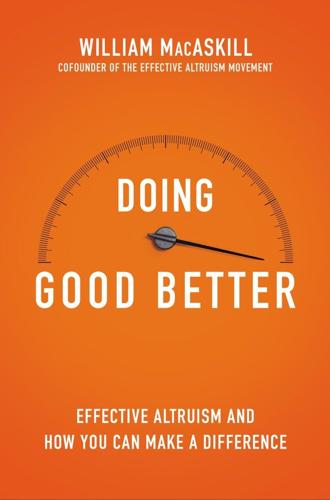
Doing Good Better: How Effective Altruism Can Help You Make a Difference
by
William MacAskill
Published 27 Jul 2015
Go onto efffectivealtruism.org and sign up to the effective altruism mailing list. That way you can learn more about effective altruism and about how to get involved in the community, and read stories of people putting effective altruism into practice. You can also talk with others in the Effective Altruism Forum, and there you can find out more about issues that I haven’t been able to cover in this book, like whether to give now or invest and give later, or the impact of giving on your personal happiness. 4: Tell others about effective altruism. Go on Facebook, Twitter, Instagram, or your blog, and write some of your thoughts about what you’ve read.
…
Utilitarianism is the view, roughly speaking, that one is always required to do whatever will maximize the sum total of well-being, no matter what. The similarity between effective altruism and utilitarianism is that they both focus on improving people’s lives, but this is a part of any reasonable moral view. In other respects, effective altruism can depart significantly from utilitarianism. Effective altruism doesn’t claim that you are morally required to do as much good as you can, only that you should use at least a significant proportion of your time or money to help others. Effective altruism doesn’t say that you may violate people’s rights for the greater good. Effective altruism can recognize sources of value other than happiness, like freedom and equality.
…
Kremer and Glennerster exemplify a way of thinking I call effective altruism. Effective altruism is about asking, “How can I make the biggest difference I can?” and using evidence and careful reasoning to try to find an answer. It takes a scientific approach to doing good. Just as science consists of the honest and impartial attempt to work out what’s true, and a commitment to believe the truth whatever that turns out to be, effective altruism consists of the honest and impartial attempt to work out what’s best for the world, and a commitment to do what’s best, whatever that turns out to be. As the phrase suggests, effective altruism has two parts, and I want to be clear on what each part means.
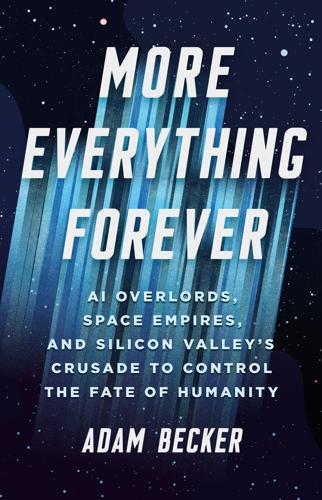
More Everything Forever: AI Overlords, Space Empires, and Silicon Valley's Crusade to Control the Fate of Humanity
by
Adam Becker
Published 14 Jun 2025
Here’s How to Do the Most Good with Them,” Vox, August 3, 2015, www.vox.com/2015/7/29/9067641/william-macaskill-effective-altruism. 55 William MacAskill, “Replaceability, Career Choice, and Making a Difference,” Ethical Theory and Moral Practice 17 (2014): 269–283, https://doi.org/10.1007/s10677-013-9433-4. 56 William MacAskill, personal communication. 57 “Sam Bankman-Fried,” 80,000 Hours, archived June 13, 2021, at the Wayback Machine, https://web.archive.org/web/20210613111013/https://80000hours.org/stories/sam-bankman-fried/. 58 Fisher, “Sam Bankman-Fried Has a Savior Complex.” 59 Reed Albergotti and Liz Hoffman, “Charity-Linked Money Launched Sam Bankman-Fried’s Empire,” Semafor, December 8, 2022, www.semafor.com/article/12/07/2022/charity-money-launched-sam-bankman-frieds-empire. 60 White House, “FACT SHEET: Climate and Energy Implications of Crypto-Assets in the United States,” news release, September 8, 2022, www.whitehouse.gov/ostp/news-updates/2022/09/08/fact-sheet-climate-and-energy-implications-of-crypto-assets-in-the-united-states/; Hannah Ritchie, Pablo Rosado, and Max Roser, “CO2 and Greenhouse Gas Emissions,” database, Our World in Data, accessed March 27, 2023, https://ourworldindata.org/co2-and-greenhouse-gas-emissions. 61 “Crypto Firm FTX Trading’s Valuation Rises to $18 bln After $900 mln Investment,” Reuters, July 20, 2021, www.reuters.com/technology/crypto-firm-ftx-trading-raises-900-mln-18-bln-valuation-2021-07-20/. 62 Bill Chappell, David Gura, and Lisa Lambert, “Bankman-Fried Is Arrested as Feds Charge Massive Fraud at FTX Crypto Exchange,” NPR, December 13, 2022, www.npr.org/2022/12/12/1142361088/bankman-fried-ceo-ftx-crypto-exchange-arrested-bahamas-charges-sdny; David Gura, “Sam Bankman-Fried Is Found Guilty of All Charges in FTX’s Spectacular Collapse,” NPR, November 2, 2023, www.npr.org/2023/11/02/1210100678/sam-bankman-fried-trial-verdict-ftx-crypto; Rafael Nam, “Sam Bankman-Fried Sentenced to 25 Years in Prison for His FTX Crimes,” NPR, March 28, 2024, www.npr.org/2024/03/28/1241210300/sam-bankman-fried-ftx-sentencing-crimes-crypto-mogul-greed. 63 Zachary Robinson, “EV Updates: FTX Settlement and the Future of EV,” Effective Altruism Forum, December 13, 2023, https://forum.effectivealtruism.org/posts/HjsfHwqasyQMWRzZN/ev-updates-ftx-settlement-and-the-future-of-ev. 64 “Who We Are,” Future Fund, archived November 9, 2022, at the Wayback Machine, https://web.archive.org/web/20221109230958/https://ftxfuturefund.org/about/; “Our Grants and Investments,” Future Fund, archived November 9, 2022, at the Wayback Machine, https://web.archive.org/web/20221109231205/https://ftxfuturefund.org/our-grants/. 65 “Support Future Perfect,” Vox, August 18, 2022, www.vox.com/2020/1/7/21020439/support-future-perfect; Katie Clinebell, “By Returning $10M, Semafor Becomes the Latest Media Outlet Distancing Itself from SBF,” Investopedia, January 18, 2023, www.investopedia.com/media-outlets-are-returning-sam-bankman-fried-s-funds-7096408; “ProPublica Returns Grant Funded by Bankman-Fried Family,” ProPublica, February 28, 2022, updated December 20, 2022, www.propublica.org/atpropublica/bankman-fried-family-donates-5-million-to-propublica. 66 Dylan Matthews, “How Effective Altruism Let Sam Bankman-Fried Happen,” Vox, December 12, 2022, www.vox.com/future-perfect/23500014/effective-altruism-sam-bankman-fried-ftx-crypto. 67 Jennifer Szalai, “How Sam Bankman-Fried Put Effective Altruism on the Defensive,” New York Times, December 9, 2022, www.nytimes.com/2022/12/09/books/review/effective-altruism-sam-bankman-fried-crypto.html; Annie Lowrey, “Effective Altruism Committed the Sin It Was Supposed to Correct,” The Atlantic, November 17, 2022, www.theatlantic.com/ideas/archive/2022/11/cryptocurrency-effective-altruism-ftx-sam-bankman-fried/672149/; Gideon Lewis-Kraus, “Sam Bankman-Fried, Effective Altruism, and the Question of Complicity,” New Yorker, December 1, 2022, www.newyorker.com/news/annals-of-inquiry/sam-bankman-fried-effective-altruism-and-the-question-of-complicity; Nitasha Tiku, “The Do-Gooder Movement That Shielded Sam Bankman-Fried from Scrutiny,” Washington Post, November 17, 2022, www.washingtonpost.com/technology/2022/11/17/effective-altruism-sam-bankman-fried-ftx-crypto/; Eric Levitz, “Is Effective Altruism to Blame for Sam Bankman-Fried?
…
Matheny, “Reducing the Risk of Human Extinction,” Risk Analysis 27, no. 5 (December 7, 2007): 1335–1344, https://doi.org/10.1111/j.1539-6924.2007.00960.x. 35 Dylan Matthews, “How Effective Altruism Went from a Niche Movement to a Billion-Dollar Force,” Vox, August 8, 2022, www.vox.com/future-perfect/2022/8/8/23150496/effective-altruism-sam-bankman-fried-dustin-moskovitz-billionaire-philanthropy-crytocurrency. 36 Jason Matheny, “Effective Altruism in Government,” Effective Altruism, June 3, 2017, www.effectivealtruism.org/articles/effective-altruism-in-government-jason-matheny. Called an EA Global talk here: Centre for Effective Altruism, “Jason Matheny wanted to do good…,” Facebook, October 1, 2018, www.facebook.com/CentreforEffectiveAltruism/photos/a.1897756126985429/1923921397702235/?
…
Here’s How to Do the Most Good with Them,” Vox, August 3, 2015, www.vox.com/2015/7/29/9067641/william-macaskill-effective-altruism. 55 William MacAskill, “Replaceability, Career Choice, and Making a Difference,” Ethical Theory and Moral Practice 17 (2014): 269–283, https://doi.org/10.1007/s10677-013-9433-4. 56 William MacAskill, personal communication. 57 “Sam Bankman-Fried,” 80,000 Hours, archived June 13, 2021, at the Wayback Machine, https://web.archive.org/web/20210613111013/https://80000hours.org/stories/sam-bankman-fried/. 58 Fisher, “Sam Bankman-Fried Has a Savior Complex.” 59 Reed Albergotti and Liz Hoffman, “Charity-Linked Money Launched Sam Bankman-Fried’s Empire,” Semafor, December 8, 2022, www.semafor.com/article/12/07/2022/charity-money-launched-sam-bankman-frieds-empire. 60 White House, “FACT SHEET: Climate and Energy Implications of Crypto-Assets in the United States,” news release, September 8, 2022, www.whitehouse.gov/ostp/news-updates/2022/09/08/fact-sheet-climate-and-energy-implications-of-crypto-assets-in-the-united-states/; Hannah Ritchie, Pablo Rosado, and Max Roser, “CO2 and Greenhouse Gas Emissions,” database, Our World in Data, accessed March 27, 2023, https://ourworldindata.org/co2-and-greenhouse-gas-emissions. 61 “Crypto Firm FTX Trading’s Valuation Rises to $18 bln After $900 mln Investment,” Reuters, July 20, 2021, www.reuters.com/technology/crypto-firm-ftx-trading-raises-900-mln-18-bln-valuation-2021-07-20/. 62 Bill Chappell, David Gura, and Lisa Lambert, “Bankman-Fried Is Arrested as Feds Charge Massive Fraud at FTX Crypto Exchange,” NPR, December 13, 2022, www.npr.org/2022/12/12/1142361088/bankman-fried-ceo-ftx-crypto-exchange-arrested-bahamas-charges-sdny; David Gura, “Sam Bankman-Fried Is Found Guilty of All Charges in FTX’s Spectacular Collapse,” NPR, November 2, 2023, www.npr.org/2023/11/02/1210100678/sam-bankman-fried-trial-verdict-ftx-crypto; Rafael Nam, “Sam Bankman-Fried Sentenced to 25 Years in Prison for His FTX Crimes,” NPR, March 28, 2024, www.npr.org/2024/03/28/1241210300/sam-bankman-fried-ftx-sentencing-crimes-crypto-mogul-greed. 63 Zachary Robinson, “EV Updates: FTX Settlement and the Future of EV,” Effective Altruism Forum, December 13, 2023, https://forum.effectivealtruism.org/posts/HjsfHwqasyQMWRzZN/ev-updates-ftx-settlement-and-the-future-of-ev. 64 “Who We Are,” Future Fund, archived November 9, 2022, at the Wayback Machine, https://web.archive.org/web/20221109230958/https://ftxfuturefund.org/about/; “Our Grants and Investments,” Future Fund, archived November 9, 2022, at the Wayback Machine, https://web.archive.org/web/20221109231205/https://ftxfuturefund.org/our-grants/. 65 “Support Future Perfect,” Vox, August 18, 2022, www.vox.com/2020/1/7/21020439/support-future-perfect; Katie Clinebell, “By Returning $10M, Semafor Becomes the Latest Media Outlet Distancing Itself from SBF,” Investopedia, January 18, 2023, www.investopedia.com/media-outlets-are-returning-sam-bankman-fried-s-funds-7096408; “ProPublica Returns Grant Funded by Bankman-Fried Family,” ProPublica, February 28, 2022, updated December 20, 2022, www.propublica.org/atpropublica/bankman-fried-family-donates-5-million-to-propublica. 66 Dylan Matthews, “How Effective Altruism Let Sam Bankman-Fried Happen,” Vox, December 12, 2022, www.vox.com/future-perfect/23500014/effective-altruism-sam-bankman-fried-ftx-crypto. 67 Jennifer Szalai, “How Sam Bankman-Fried Put Effective Altruism on the Defensive,” New York Times, December 9, 2022, www.nytimes.com/2022/12/09/books/review/effective-altruism-sam-bankman-fried-crypto.html; Annie Lowrey, “Effective Altruism Committed the Sin It Was Supposed to Correct,” The Atlantic, November 17, 2022, www.theatlantic.com/ideas/archive/2022/11/cryptocurrency-effective-altruism-ftx-sam-bankman-fried/672149/; Gideon Lewis-Kraus, “Sam Bankman-Fried, Effective Altruism, and the Question of Complicity,” New Yorker, December 1, 2022, www.newyorker.com/news/annals-of-inquiry/sam-bankman-fried-effective-altruism-and-the-question-of-complicity; Nitasha Tiku, “The Do-Gooder Movement That Shielded Sam Bankman-Fried from Scrutiny,” Washington Post, November 17, 2022, www.washingtonpost.com/technology/2022/11/17/effective-altruism-sam-bankman-fried-ftx-crypto/; Eric Levitz, “Is Effective Altruism to Blame for Sam Bankman-Fried?,” New York, November 16, 2022, https://nymag.com/intelligencer/2022/11/effective-altruism-sam-bankman-fried-sbf-ftx-crypto.html; Zeeshan Aleem, “How Sam Bankman-Fried’s Fall Exposes the Perils of Effective Altruism,” MSNBC, December 3, 2022, www.msnbc.com/opinion/msnbc-opinion/ftx-sbf-effective-altruism-bankman-fried-rcna59172. 68 David Yaffe-Bellany, Lora Kelley, and Cade Metz, “She Was a Little-Known Crypto Trader.
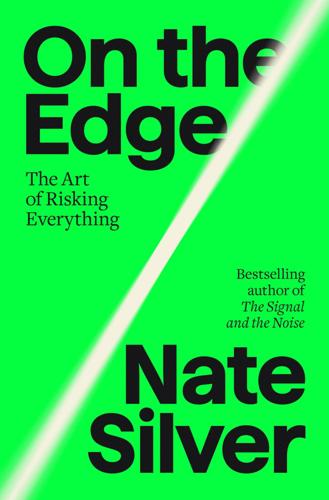
On the Edge: The Art of Risking Everything
by
Nate Silver
Published 12 Aug 2024
It probably just means they’re going to round “priceless” down to zero and cut you a bad deal. So, Uh, What Is Effective Altruism Exactly? Is this way of thinking about the world—quantifying hard-to-quantify things, engaging in cost-benefit analysis in situations where people might not think to apply it—unique to effective altruism? No. It’s common everywhere in the River, a hallmark of what I described in the introduction as decoupling, meaning the propensity to analyze an issue divorced from its larger context. So then: What is effective altruism, exactly? In one sense, effective altruism is just a brand name, created by MacAskill and another Oxford philosopher, Toby Ord, in 2011.
…
GO TO NOTE REFERENCE IN TEXT that wokeness is: Zaid Jilani, “John McWhorter Argues That Antiracism Has Become a Religion of the Left,” The New York Times, October 26, 2021, sec. Books, nytimes.com/2021/10/26/books/review/john-mcwhorter-woke-racism.html. GO TO NOTE REFERENCE IN TEXT that effective altruism is one: Dominic Roser and Stefan Riedener, “Effective Altruism and Religion: Synergies, Tensions, Dialogue,” Canopy Forum, September 30, 2022, canopyforum.org/2022/09/30/effective-altruism-and-religion-synergies-tensions-dialogue. GO TO NOTE REFERENCE IN TEXT a famous conundrum: Thomas C. Schelling, The Strategy of Conflict, Kindle ed. (Cambridge, MA: Harvard University Press, 2016), 56.
…
GO TO NOTE REFERENCE IN TEXT The actual amount: Thalia Beaty and Glenn Gamboa, “Facebook Cofounder Blames SBF’s ‘Effective Altruism’ Mindset for FTX Troubles,” Fortune, November 14, 2022, fortune.com/2022/11/14/ftx-bankruptcy-puts-charitable-donations-in-doubt-and-some-blame-sam-bankman-frieds-effective-altruism-mindset-for-troubles. GO TO NOTE REFERENCE IN TEXT SBF thought this: Kelsey Piper, “Sam Bankman-Fried Tries to Explain Himself,” Vox, November 16, 2022, vox.com/future-perfect/23462333/sam-bankman-fried-ftx-cryptocurrency-effective-altruism-crypto-bahamas-philanthropy. GO TO NOTE REFERENCE IN TEXT Bankman-Fried had worked: Benjamin Wallace, “The Mysterious Cryptocurrency Magnate Who Became One of Biden’s Biggest Donors,” Intelligencer, February 2, 2021, nymag.com/intelligencer/2021/02/sam-bankman-fried-biden-donor.html.
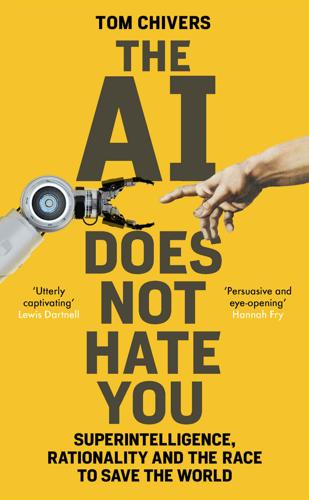
The Rationalist's Guide to the Galaxy: Superintelligent AI and the Geeks Who Are Trying to Save Humanity's Future
by
Tom Chivers
Published 12 Jun 2019
In 2014, 31 per cent of survey respondents said that they had first heard of the movement through LessWrong;5 by 2017, that figure had dropped to 15 per cent, presumably partly because LessWrong had shrunk while Effective Altruism had grown, but a further 7 per cent had heard of it through Slate Star Codex.6 And a large fraction of LessWrongers are Effective Altruists: according to the 2016 LessWrong diaspora survey, 20 per cent of respondents identified as Effective Altruists, and 22 per cent had made ‘donations they otherwise wouldn’t’ because of Effective Altruism.7 Two other OpenPhil employees, Helen Toner and Ajeya Cotra – whom you’ll meet shortly – told me that they’d either come to Effective Altruism through LessWrong or found the two at the same time. One Effective Altruist blog, ‘The Unit of Caring’, is named after a Yudkowsky blog post (‘Money: The Unit of Caring’). Scott Alexander has written repeatedly about Effective Altruism, including an extremely powerful blog post8 backing the Giving What We Can ‘pledge’ to donate 10 per cent of your income to effective charities.
…
Giving USA 2018: The Annual Report on Philanthropy for the Year 2017 https://givingusa.org/giving-usa-2018-americans-gave-410-02-billion-to-charity-in-2017-crossing-the-400-billion-mark-for-the-first-time/ 5. The 2014 survey of Effective Altruists, Centre for Effective Altruism http://effective-altruism.com/ea/gb/the_2014_survey_of_effective_altruists_results/ 6. EA 2017 survey, Centre for Effective Altruism https://rtcharity.org/tag/ea-survey-2017/ 7. LessWrong diaspora survey 2016 http://www.jdpressman.com/public/lwsurvey2016/Survey_554193_LessWrong_Diaspora_2016_Survey%282%29.pdf 8. Scott Alexander, ‘Nobody is perfect, everything is commensurable’, 2014 http://slatestarcodex.com/2014/12/19/nobody-is-perfect-everything-is-commensurable/ 9.
…
But it is easier to dismiss their concerns if you think they are. Part Eight Doing Good Better Chapter 38 The Effective Altruists It’s impossible to talk about the Rationalists without mentioning their conjoined twin, the Effective Altruism movement. They’re so intertwined that I have a bad habit of using the terms synonymously, but they are in fact distinct. Effective Altruism is based on the idea that we should do the most good we can with our resources. If we give to charity, we should give to those charities that do the most good. If we want to dedicate our careers to improving the world, then we should think carefully (and use numbers) to establish how we should spend our careers.
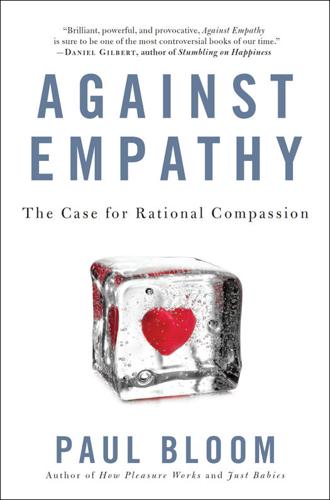
Against Empathy: The Case for Rational Compassion
by
Paul Bloom
Paul Brest complains about Paul Brest, “Forum: Logic of Effective Altruism,” https://bostonreview.net/forum/logic-effective-altruism/paul-brest-response-effective-altruism. Catherine Tumber discusses Catherine Tumber, “Forum: Logic of Effective Altruism,” https://bostonreview.net/forum/logic-effective-altruism/catherine-tumber-response-effective-altruism. Singer has less patience Peter Singer, “Forum: Logic of Effective Altruism, Reply,” https://bostonreview.net/forum/logic-effective-altruism/peter-singer-reply-effective-altruism-responses. 106 One of the most thoughtful Elaine Scarry, “The Difficulty of Imagining Other People,” in For Love of Country: Debating the Limits of Patriotism, eds.
…
(New York: Macmillan, 2010). 100 “empathy of foreigners” Thomas Fuller, “Cambodian Activist’s Fall Exposes Broad Deception,” New York Times, June 14, 2014. 102 “Effective Altruism” Kathy Graham, “The Life You Can Save,” Happy and Well, May 27, 2013, http://www.happyandwell.com.au/life-save. “they don’t understand math” Singer, The Most Good You Can Do, 87. As Jennifer Rubenstein put it Jennifer Rubenstein, “Forum: Logic of Effective Altruism,” Boston Review, July 6, 2015, https://bostonreview.net/forum/logic-effective-altruism/jennifer-rubenstein-response-effective-altruism. 103 Not everyone is a fan See the commentators on Peter Singer, “Forum: Logic of Effective Altruism,” Boston Review, July 6, 2015, https://bostonreview.net/forum/peter-singer-logic-effective-altruism.
…
As Jennifer Rubenstein put it Jennifer Rubenstein, “Forum: Logic of Effective Altruism,” Boston Review, July 6, 2015, https://bostonreview.net/forum/logic-effective-altruism/jennifer-rubenstein-response-effective-altruism. 103 Not everyone is a fan See the commentators on Peter Singer, “Forum: Logic of Effective Altruism,” Boston Review, July 6, 2015, https://bostonreview.net/forum/peter-singer-logic-effective-altruism. For further critical remarks on Effective Altruism, see Amia Srinivasan, “Stop the Robot Apocalypse: The New Utilitarians,” London Review of Books, September 24, 2015. argument by Scott Alexander Scott Alexander, “Beware Systemic Change,” Slate Star Codex, September 22, 2015, http://slatestarcodex .com/2015/09/22/beware-systemic-change. 104 Larissa MacFarquhar notes Larissa MacFarquhar, “Forum: Logic of Effective Altruism,” https://bostonreview.net/forum/logic-effective-altruism/larissa-macfarquhar-response-effective-altruism. Paul Brest complains about Paul Brest, “Forum: Logic of Effective Altruism,” https://bostonreview.net/forum/logic-effective-altruism/paul-brest-response-effective-altruism.

Supremacy: AI, ChatGPT, and the Race That Will Change the World
by
Parmy Olson
Others flipped that around. Nick Beckstead, a program officer with effective altruism’s biggest charitable backer, Open Philanthropy, once wrote that “saving a life in a rich country is substantially more important than saving a life in a poor country because richer countries have more innovation, and their workers are more economically productive.” Human life was quantifiable, and doing good was a mathematical problem that needed teasing out. The mission of building AGI had a particular appeal to anyone who believed in effective altruism’s higher-numbers-are-better philosophy, because you were building technology that could impact billions or even trillions of lives in the future.
…
It often steered the technically minded ones toward AI safety work. But the group also encouraged graduates to pick careers that paid the highest salaries, allowing them to donate as much money as possible to high-impact causes. MacAskill and his young team eventually reincorporated themselves as the Center for Effective Altruism and a new credo was born. The driving idea behind effective altruism was efficiency. People who lived in wealthy countries had an obligation to help those in poorer nations because that’s where they could have the most bang for their buck. You could help more people in Africa through global health charities, for instance, than by donating to the poor in America.
…
“What he said sort of seemed obviously right to me,” Bankman-Fried said in the book. He took a job at a quantitative trading firm and eventually founded the crypto-currency exchange FTX in 2019. Bankman-Fried put effective altruism front and center of that business. His cofounders and management team were effective altruists and kept MacAskill on as a member of the FTX Future Fund, which would go on to give $160 million to effective altruism causes in 2022, some of which were directly linked to MacAskill. He frequently talked to the press about giving all his money away, and in large posters advertising FTX, he was pictured in his trademark T-shirt and cargo shorts, flanked by the words: “I’m in on crypto because I want to make the biggest global impact for good.”
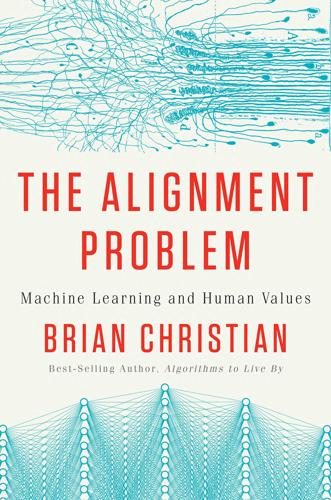
The Alignment Problem: Machine Learning and Human Values
by
Brian Christian
Published 5 Oct 2020
As he puts it: “What shall I do when I am uncertain what I morally ought to do? Philosophers have paid little attention to this sort of question.” 78. For more on the ideas of effective altruism, see MacAskill, Doing Good Better, and Singer, The Most Good You Can Do. For more on the history of the term “effective altruism,” see MacAskill’s “The History of the Term ‘Effective Altruism,’” Effective Altruism Forum, http://effective-altruism.com/ea/5w/the_history_of_the_term_effective_altruism/. 79. MacAskill, Bykvist, and Ord, Moral Uncertainty. See also the earlier book by Lockhart: Moral Uncertainty and Its Consequences. 80. See, e.g., Lockhart, Moral Uncertainty and Its Consequences, and Gustafsson and Torpman, “In Defence of My Favourite Theory.” 81.
…
Some recent philosophical literature explicitly discusses the links between possibilism, actualism, and effective altruism. See, e.g., Timmerman, “Effective Altruism’s Underspecification Problem.” 65. Singer, “Famine, Affluence, and Morality”; see also Singer, “The Drowning Child and the Expanding Circle.” 66. Julia Wise, “Aim High, Even If You Fall Short,” Giving Gladly (blog), October 8, 2014. http://www.givinggladly.com/2014/10/aim-high-even-if-you-fall-short.html. 67. Will MacAskill, “The Best Books on Effective Altruism,” interview by Edouard Mathieu, Five Books, https://fivebooks.com/best-books/effective-altruism-will-macaskill/. See also the organization Giving What We Can, founded by MacAskill and his colleague Toby Ord after Ord decided, inspired by Singer and others, to commit to giving a portion of his income to effective charities. 68.
…
A perfect person, perhaps, could donate almost all of their money to charity while staying happy and upbeat and motivated, and inspiring to others. But even the devoted members of the “EA” movement, including Singer himself, are not such perfect people. Julia Wise, a leader in the effective altruism community and the community liaison at the Centre for Effective Altruism, has made impressive commitments in her own life—giving 50% of her income to charity, for instance—but she emphasizes the value of not striving for perfection. “Give yourself permission to go partway,” she says.66 She noticed, for instance, that her own commitment to veganism could not accommodate her deep love of ice cream—and so she felt she couldn’t be a vegan.
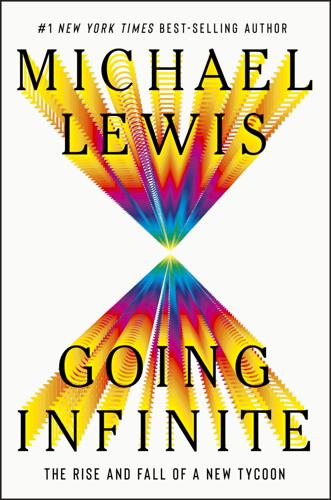
Going Infinite: The Rise and Fall of a New Tycoon
by
Michael Lewis
Published 2 Oct 2023
The business hadn’t even really been Sam’s idea but Tara’s. Tara had been running the Centre for Effective Altruism, in Berkeley, and Sam, while at Jane Street, had become one of her biggest donors. Through the spring and summer of 2017, the two of them were on the phone constantly. At some point Sam revealed his romantic interest in her; at some other point Tara revealed that she was trading crypto in her personal account. Tara was no one’s idea of a crypto trader—before moving to run the Centre for Effective Altruism, she’d modeled pharmaceutical demand for the Red Cross. She had no financial background and no money to speak of and yet was generating tens of thousands in profits trading crypto.
…
“You can try to put a number on it but obviously anything that flows through to that is going to have a vast multiplier.” One day some historian of effective altruism will marvel at how easily it transformed itself. It turned its back on living people without bloodshed or even, really, much shouting. You might think that people who had sacrificed fame and fortune to save poor children in Africa would rebel at the idea of moving on from poor children in Africa to future children in another galaxy. They didn’t, not really—which tells you something about the role of ordinary human feeling in the movement. It didn’t matter. What mattered was the math. Effective altruism never got its emotional charge from the places that charged ordinary philanthropy.
…
(At little inconvenience to himself his money would save, over the course of Ord’s lifetime, eighty thousand African children from blindness.) Will MacAskill followed with a charm offensive to recruit young people on college campuses to join the cause. “The thing that Toby and Will did was to say, ‘No, we think the argument is sound,’ ” said Singer. The new social movement sprang directly from Singer’s forty-year-old argument. Effective altruism, the Oxford philosophers called their movement, after trying and failing to think of a better name. The argument that MacAskill put to Sam and a small group of Harvard students in the fall of 2012 went roughly as follows: you, student at an elite university, will spend roughly eighty thousand hours of your life working.
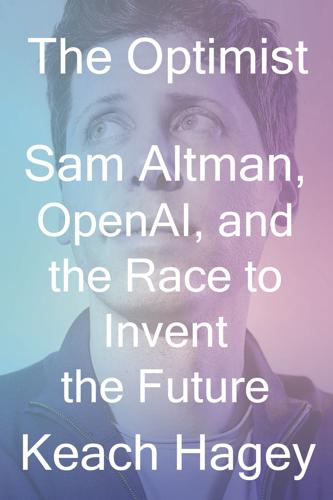
The Optimist: Sam Altman, OpenAI, and the Race to Invent the Future
by
Keach Hagey
Published 19 May 2025
After the defection of the large contingent that founded Anthropic, Holden Karnofsky, as the spouse of a defector, had left the board, and recommended his fellow EA, Helen Toner, to be his replacement. Toner, who has loose, mouse-brown curls and an approachable demeanor, grew up in Australia as a model UN nerd with an interest in science. While studying chemical engineering and Arabic at the University of Melbourne, she got involved with the university’s effective altruism organization, Effective Altruism Melbourne. Contrary to the traditional career advice telling students to pick something they were passionate about, EA Melbourne counseled students to think more dispassionately and mathematically about how to help as many people as possible. And as interest in deep learning began to spread through the community starting in 2012—kicked off by Sutskever, Krizhevsky, and Hinton’s AlexNet research—this advice increasingly involved thinking about how to mitigate the harms from AI.
…
“Guest Annie Altman—Writer, Podcaster and Comedian,” Sally Take Live podcast, March 20, 2020. 17.Sam Levin, “Peter Thiel Faces Silicon Valley Backlash After Pledging $1.25 Million to Trump,” The Guardian, October 17, 2016. 18.Nitasha Tiku, “Meet the Techies Trying to Create the Turbo Tax of Voting,” BuzzFeed News, September 8, 2016. 19.Sam Altman, “What I Heard from Trump Supporters,” Sam Altman blog, February 21, 2017. 20.Douglas MacMillan, Keach Hagey, Deepa Seetharaman, “Tech Luminary Peter Thiel Parts Ways with Silicon Valley,” The Wall Street Journal, February 15, 2018. 21.Chafkin, The Contrarian, 200. 22.Tess Townsend, “Sam Altman Wants to See a Techie Run for California Governor and Challenge Trump,” Vox, April 14, 2017. 23.Willie Brown, “The Man President Trump Fears Most,” San Francisco Chronicle, May 15, 2017. 24.William Turton, “A Silicon Valley Kingmaker Wants to Fix What Tech Did to California,” The Outline, August 7, 2017. 25.Vauhini Vara, “The Political Awakening of Silicon Valley,” The California Sunday Magazine, September 13, 2017. 26.Klint Finley, “Obama Wants the Government to Help Develop AI,” Wired, October 12, 2016. 27.“Tasha McCauley: Cool Robot Chick,” ChiTAG Blog, July 23, 2014. 28.Centre for Effective Altruism, “EA in Media, Joseph Gordon-Levitt, Julia Galef, AJ Jacobs, and William MacAskill,” YouTube, November 7, 2017. 29.Future of Life Institute, “Asilomar AI Principles,” Future of Life Institute, January 2017. 30.Eliezer Yudkowsky, “Purchase Fuzzies and Utilons Separately,” LessWrong, December 22, 2007. 31.Gideon Lewis-Kraus, “The Reluctant Prophet of Effective Altruism,” The New Yorker, August 8, 2002. 32.Megan O’Neil, “Wringing the Most Good Out of a Facebook Fortune,” The Chronicle of Philanthropy, December 1, 2015. 33.Open Philanthropy.
…
In March, Yudkowsky had published an op-ed in Time magazine arguing that unless the current wave of generative AI research was halted, “literally everyone on Earth will die.”2 “You don’t understand how Eliezer has programmed half the people in your company to believe this stuff,” Thiel warned Altman. “You need to take this more seriously.” Altman picked at his vegetarian dish and tried not to roll his eyes. This was not the first dinner where Thiel had warned him that the company had been taken over by “the EAs,” by which he meant people who subscribed to the philosophy of effective altruism, a data-driven cousin of utilitarianism. The EAs had lately pivoted from trying to end global poverty to trying to prevent runaway AI from murdering humanity. Thiel had repeatedly predicted that “the AI safety people” would “destroy” OpenAI. Thiel had backed the company from the beginning, first with a personal donation when it was just a small nonprofit research lab in 2015, and then again earlier in 2023 through his Founders Fund, after OpenAI had sprouted a for-profit subsidiary designed to gobble up billions from Microsoft and other investors.
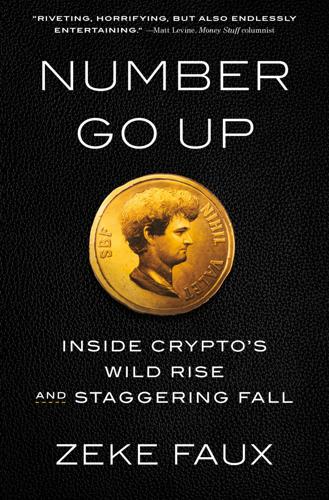
Number Go Up: Inside Crypto's Wild Rise and Staggering Fall
by
Zeke Faux
Published 11 Sep 2023
Then, in late 2017, he quit Jane Street, moved back to California, and took a job as director of business development for MacAskill’s Centre for Effective Altruism. He said that his idea was that he could play an important role in getting the movement off the ground. But another possibility also caught his eye—one that would pull him right back into trading within a few weeks. By then, crypto was in the middle of its first boom: the scammy initial coin offering craze. The prices of Bitcoin and hundreds of other recently created coins were spiking wildly. The CEO of the Centre for Effective Altruism, Tara Mac Aulay, had been playing around with trading strategies in her spare time.
…
Nikola had paid $125 million, meaning Anderson potentially stood to get a $37.5 million reward for his electric-truck exposé. If the government fined Tether for lying about its reserves, the payout could easily be at least that much. Anderson said he’d share his cut. Doing some quick math in my head, I realized it could mean $10 million or more for me. I’d been reading about effective altruism, the philanthropic movement that Sam Bankman-Fried belonged to, and I found myself turning to its logic. Even if I didn’t want the money for myself, I could donate it to charity. Given to the right causes, $10 million could potentially save thousands of lives. Wouldn’t it be even more unethical for me to refuse the reward?
…
Then, in 2012, Bankman-Fried went to a talk by Will MacAskill, a twenty-five-year-old doctoral student at Oxford who was trying to turn Singer’s ideas into a movement. MacAskill and his collaborators aimed to use mathematical calculations to figure out how individuals could do the most good with their money and time. They dubbed their movement “effective altruism.” Over lunch at Au Bon Pain, MacAskill told Bankman-Fried about one of his ideas: “earning to give.” He said that for someone of Bankman-Fried’s mathematical talents, it might make sense to pursue a high-paying job on Wall Street, then donate his earnings to charity. Effective altruists calculated that a few thousand dollars spent on insecticide-treated bed nets in Africa could prevent one death from malaria.
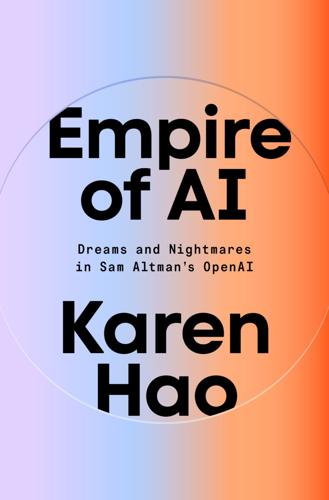
Empire of AI: Dreams and Nightmares in Sam Altman's OpenAI
by
Karen Hao
Published 19 May 2025
GO TO NOTE REFERENCE IN TEXT Online EA and AI safety forums: Shazeda Ahmed, Klaudia Jaźwińska, Archana Ahlawat, Amy Winecoff, and Mona Wang, “Building the Epistemic Community of AI Safety,” preprint, SSRN, December 1, 2023, 1–14, ssrn.com/abstract=4641526; “What Is Effective Altruism?,” Effective Altruism Forum. GO TO NOTE REFERENCE IN TEXT The influx of members: Most of these definitions are pulled from LessWrong and Effective Altruism Forum; for example: “AI Timelines,” LessWrong, accessed on October 17, 2024, lesswrong.com/tag/ai-timelines; “Global Catastrophic Risk,” Effective Altruism Forum, accessed on November 27, 2024, forum.effectivealtruism.org/topics/global-catastrophic-risk. GO TO NOTE REFERENCE IN TEXT Mixed with the tech: Charlotte Alter, “Effective Altruism Promises to Do Good Better.
…
GO TO NOTE REFERENCE IN TEXT In a 2013 paper: William MacAskill, “Replaceability, Career Choice, and Making a Difference,” Ethical Theory and Moral Practice 17 (2013): 269–83, doi.org/10.1007/S10677-013-9433-4. GO TO NOTE REFERENCE IN TEXT Under the logic: “What Is Effective Altruism?,” Effective Altruism Forum, accessed October 8, 2024, effectivealtruism.org/articles/introduction-to-effective-altruism. GO TO NOTE REFERENCE IN TEXT “I and others”: Will MacAskill, “What Are the Most Important Moral Problems of Our Time?,” TED Talk, April 2018, 11 min., 45 sec., ted.com/talks/will_macaskill_what_are_the_most_important_moral_problems_of_our_time.
…
GO TO NOTE REFERENCE IN TEXT As he amassed his wealth: Rebecca Ackermann, “Inside Effective Altruism, Where the Far Future Counts a Lot More Than the Present,” MIT Technology Review, October 17, 2022, technologyreview.com/2022/10/17/1060967/effective-altruism-growth. GO TO NOTE REFERENCE IN TEXT At the start of 2022: “Announcing the Future Fund,” FTX Future Fund, archived on November 27, 2022, at web.archive.org/web/20221127183608/https://ftxfuturefund.org/announcing-the-future-fund. GO TO NOTE REFERENCE IN TEXT According to estimates compiled: “An Overview of the AI Safety Funding Situation,” Effective Altruism Forum, accessed October 8, 2024, forum.effectivealtruism.org/posts/XdhwXppfqrpPL2YDX/an-overview-of-the-ai-safety-funding-situation; author correspondence with Open Philanthropy spokesperson, November 2024.
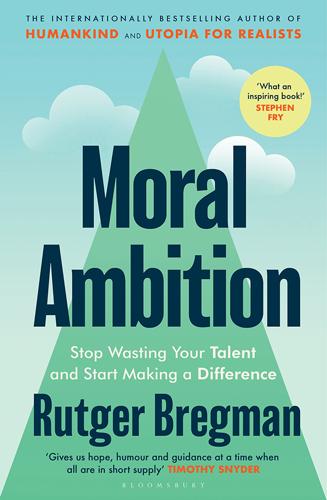
Moral Ambition: Stop Wasting Your Talent and Start Making a Difference
by
Bregman, Rutger
Published 9 Mar 2025
And for that matter, a real effective altruist would of course never have bought such expensive shoes in the first place.) 33 Justin Sandefur, ‘How Economists Got Africa’s aids Epidemic Wrong’, cgdev.com (31 May 2023). 34 Eric Levitz, ‘Is Effective Altruism to Blame for Sam Bankman-Fried?’, New York Intelligencer (16 November 2022). 35 Quoted in: Kelsey Ables, ‘The enduring appeal of remote Pacific islands for rich apocalypse preppers’, Washington Post (26 July 2023). See also: Michael Lewis, Going Infinite: The Rise and Fall of a New Tycoon, Allen Lane (2023), pp. 187–91. 36 As early as 2015, a few years before the movement went off the rails, a young Oxford philosopher, Amia Srinivasan, wrote that ‘effective altruism doesn’t try to understand how power works, except to better align itself with it.’ ea doesn’t provide any radical social criticism, she wrote, and ‘in this sense, it leaves everything just as it is.’
…
Someone recommended he meet an ambitious philosophy student by the name of William MacAskill.19 MacAskill was also a big fan of Singer’s and equally frustrated with all those philosophers who did nothing with their high-minded ideas. He’d just spent the summer raising money for charity. The young men met at a cemetery – no joke – and ended up talking for hours and hours. They set up their first nonprofit soon after, based on a new idea they would dub effective altruism, or EA. That first organisation founded by Ord and MacAskill was Giving What We Can, which encouraged people to donate at least 10 per cent of their incomes.20 But that was just the beginning. Because once you decide you want to donate, the next question of course is: donate to what? There are millions of charities worldwide, and as we’ve seen, some are far more effective than others.
…
Once the lessons sunk in, however, he set other priorities and ended up becoming a corporate banker in London. That way, he’d have more money and could donate more to effective charities. Or, as he confided to a journalist, ‘I decided to be Superman.’31 4 So much for my initial impressions of effective altruism. To be honest, I’d already lost interest. Who wants to join a movement that insists on rubbing your nose in the fact that you can never do enough? That thought experiment of Peter Singer’s – about all the drowning children – felt like a form of extortion. Sure, you’ve got to make sacrifices sometimes for a good cause.
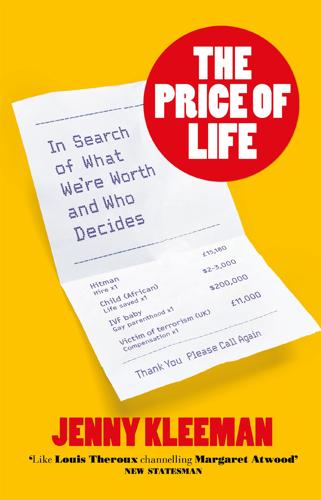
The Price of Life: In Search of What We're Worth and Who Decides
by
Jenny Kleeman
Published 13 Mar 2024
‘You would think that the way to reason is “Wow, I’ve done so much good, now I can just chill out a little bit.” But actually, things get even higher stakes. It warms my heart to see such an uptake of these ideas. Normally you have to wait centuries before seeing the impact of philosophical ideas.’ Will is the co-founder and president of the Centre for Effective Altruism – the premier resource for the 10,000-strong effective altruism community – which is largely funded by Cari Tuna and Dustin Moskowitz. He’s reluctant to describe the typical effective altruist – ‘I worry talking about that might be self-reinforcing’ – but he’s happy to answer the ‘pure, statistical question of what does the median EA look like’, ticking off attributes on his fingers.
…
sh=1e557ffb4e09 around $10 billion a year The Chronicle of Philanthropy, ‘A list of America’s top 50 donors of 2020’, AP News (10 February 2021). https://apnews.com/article/technology-amazoncom-inc-michael-bloomberg-jeff-bezos-philanthropy-43ff7817a0c8b7babfd2ab9bb67d3b5e $1 billion a year ‘We aim to cost-effectively direct around $1 billion annually by 2025’, GiveWell (22 November 2021). https://blog.givewell.org/2021/11/22/we-aim-to-cost-effectively-direct-around-1-billion-annually-by-2025/ $2,000–3,000 per life saved You can see their working for this here: https://docs.google.com/spreadsheets/d/1CuIwrlm OchJMRojhKLiuitDXTnT0XJQVs0qAdX6Hi4E/edit#gid=1350747058 anywhere else in the US Fortson, Danny, ‘American nightmare: the homelessness crisis in San Francisco’, The Times (29 August 2021). https://www.thetimes.co.uk/article/san-francisco-homelessness-crisis-tent-cities-bclgk20s5 chronic medical conditions Hepler, Lauren and Knight, Heather, ‘S.F. homeless deaths more than doubled during the pandemic’s first year ‒ but not because of COVID’, San Francisco Chronicle (10 March 2022). https://www.sfchronicle.com/sf/article/San-Francisco-homeless-deaths-more-than-doubled-16990683.php ‘More permissive policy’ ‘We seek to reduce the harms caused by excessively restrictive local land use regulations’, Open Philanthropy. https://www.openphilanthropy.org/focus/land-use-reform/ $26.5 billion ‘Sam Bankman-Fried’, Forbes. https://www.forbes.com/profile/sam-bankman-fried/?sh=455ed2984449 effective causes Lewis-Kraus, Gideon, ‘The Reluctant Prophet of Effective Altruism’, The New Yorker (8 August 2022). https://www.newyorker.com/magazine/2022/08/15/the-reluctant-prophet-of-effective-altruism a blog post ‘Why Is It So Expensive to Save Lives?’, GiveWell (December 2021). https://www.givewell.org/cost-to-save-a-life ‘Sam Bankman-Fried perpetrated ‘Sam Bankman-Fried found guilty on all seven criminal fraud counts’, CNBC, 2 November 2023. https://www.cnbc.com/2023/11/02/sam-bankman-fried-found-guilty-on-all-seven-criminal-fraud-counts.html from Bankman-Fried As explained in this Twitter thread: https://twitter.com/willmacaskill/status/1591218014707671040?
…
See murder homosexuality ref1, ref2, ref3, ref4 Hosomi, Major Akinori ref1 Human Tissue Authority ref1 human trafficking ref1, ref2, ref3, ref4, ref5, ref6, ref7, ref8, ref9, ref10 Idris, Aliyu Na ref1, ref2 Immigration and Border Control, UK ref1 In the Footsteps of Killers (Channel 4 true crime series) ref1 Innes, Bob (Guido Fanelli) ref1, ref2, ref3 Institute for Clinical and Economic Review, US ref1, ref2 Institute for Economics and Peace ref1 insurance ref1, ref2, ref3, ref4 body parts ref1 health ref1, ref2, ref3 IVF ref1, ref2, ref3 kidnap and ransom (K&R) ref1, ref2, ref3, ref4, ref5 life see life insurance origins of ref1 QALY and ref1 terrorism and ref1, ref2, ref3 integrated care boards (ICBs) ref1 International Labour Organization (ILO) ref1, ref2 Interpol ref1 IRA ref1 Iran ref1, ref2, ref3, ref4 Iraq ref1, ref2, ref3, ref4, ref5 ISIS ref1, ref2, ref3 Israel ref1, ref2, ref3, ref4 ITN ref1 IVF (in-vitro fertilisation) ref1, ref2, ref3, ref4, ref5, ref6, ref7, ref8, ref9, ref10 Jalamasco, Mimi ref1 job creation ref1, ref2, ref3 Johnson, Boris ref1, ref2 Jones, Holly ref1 JP-5/JP-8 military jet fuel ref1 JustGiving ref1, ref2, ref3 Kadiye, Dahir Abdullahi ref1 Karonovski, Holden ref1 Kensal Green Boys ref1 kidnap and ransom (K&R) insurance ref1, ref2, ref3, ref4 kidneys ref1, ref2, ref3 Klis, Alex ref1 Klis, Angelika ref1 Klis, Marcin ref1 Klis, Patrycia ref1 Klum, Heidi ref1, ref2 Knight, Helen ref1, ref2, ref3 Koch, Shirley ref1 Konig, Tom ref1, ref2 Krummaker, Dr Simone ref1 LaMarca, Joe ref1, ref2, ref3, ref4 Larner, Roy (‘Lion of London Bridge’) ref1, ref2, ref3, ref4 Lause, Tara ref1, ref2, ref3 lawsuits biological parenthood and ref1, ref2 terrorism and ref1 lesbian parenthood ref1, ref2, ref3 Levine, Mike ref1 Libmeldy ref1, ref2 life insurance ref1, ref2, ref3 average value of an insured life ref1, ref2, ref3 fake death, type of person prepared to ref1 faking death overseas ref1 financial checks and ref1, ref2 human life valuation process ref1 John Darwin, aka Canoe Man and ref1 investigating claims ref1 murder for ref1 risk of death calculated ref1 subsidizing criminal activity with premiums ref1 suicides as accidental deaths ref1 UK, average claim paid in ref1 Vorotinov family claim ref1 Lloyds of London ref1, ref2 Lockheed Martin ref1, ref1, ref2 Aeronautics facility, Fort Worth (Air Force Plant Number Four) ref1, ref1 F-16 ref1 F-35 Lightning II and see F-35 Lightning II Skunk Works ref1 London Air Ambulance service ref1, ref2 London Ambulance Service ref1 London Anatomy Office ref1 London Bridge terror attack (2017) ref1, ref1, ref1, ref2 London Women’s Clinic ref1, ref2 Lopez, Jennifer (J-Lo) ref1 Luong, Nguyen Dinh ref1 Lynn Rival ref1, ref2 MacAskill, Will ref1, ref2, ref3, ref4, ref5 Mafia ref1, ref2, ref3 Maggipinto, Nicholas ref1, ref2 Maguire, Patrick ref1 Manchester Arena terror attack (2017) ref1, ref2, ref3, ref4 Mandalay Bay hotel, Las Vegas ref1 Mankey, Matthew ref1 Marine Corps, US ref1, ref2, ref3, ref4 Marmot, Sir Michael ref1, ref2 Marques, Wayne ref1, ref2 McCormick, Kevin ref1 McErlean, Anthony ref1 McMullan, James ref1, ref2 Medicare programme, US ref1 Medicines and Healthcare products Regulatory Agency (MHRA) ref1 Melbourne, Covid-19 lockdown in ref1 Men Having Babies ref1, ref2, ref3, ref4, ref5 metachromatic leukodystrophy ref1, ref2 Metropolitan Police ref1, ref2, ref3 Mexico homicide cost in ref1 kidnapping in ref1, ref2 Mexico Peace Index ref1 MGM Resorts International ref1 Ministry of Defence ref1, ref2 Ministry of Justice ref1, ref2 Mitchell Institute ref1, ref2 Mondelez ref1, ref2 Morariu, Florin ref1 Mordel, Aleksander ref1, ref2 Mordel, Edyta ref1, ref2 moremarrowdonors.org ref1 Moskowitz, Dustin ref1, ref2, ref3, ref4 Muir-Wood, Robert ref1, ref2, ref3 murder, average ref1 America, average murder costs in ref1 Category A murders ref1 Category B murders ref1 Category C murders ref1 cost in England and Wales ref1, ref2, ref3, ref4 criminal justice system, costs incurred by average murder to ref1 Mexico, average murder costs in ref1 police, cost to ref1 prison, price of life in ref1 race and cost of ref1 Shaquan Sammy-Plummer and see Sammy-Plummer, Shaquan UK Home Office calculate cost of ref1, ref2, ref3, ref4, ref5, ref6, ref7, ref8 victim support/grief counselling and ref1, ref2 Mutual of Omaha ref1, ref2, ref3, ref4, ref5 My, Pham Thi Tra ref1, ref2 nail bars ref1, ref1, ref2 Narasimhan, Vas ref1 National Domestic Abuse Helpline ref1 National Funeral Directors Association ref1, ref2 National Health Service (NHS) ref1, ref2, ref3, ref4, ref5 Covid-19 and ref1, ref2, ref3, ref4 gene therapies and ref1, ref2, ref3, ref4, ref5 see also individual drug name IVF treatment and ref1, ref2, ref3, ref4, ref5 Medicines and Healthcare Regulatory Agency (MHRA) ref1 National Institute for Health and Clinical Excellence (NICE) ref1, ref2, ref3, ref4, ref5, ref6, ref7, ref8, ref9, ref10, ref11 see also National Institute for Health and Clinical Excellence (NICE) NHS England ref1, ref2, ref3, ref4, ref5 QALY (quality-adjusted life year) and ref1, ref2, ref3, ref4 Spinal Muscular Atrophy (SMA) and ref1, ref2, ref3, ref4 National Institute for Health and Clinical Excellence (NICE) ref1, ref2, ref3, ref4, ref5, ref6, ref7, ref8, ref9, ref10, ref11 appraisal process ref1 origin of ref1 QALY (quality-adjusted life year) and ref1, ref2, ref3, ref4 Spinal Muscular Atrophy (SMA) and ref1, ref2, ref3, ref4 Spinraza and ref1, ref2, ref3, ref4, ref5, ref6, ref7, ref8 Zolgensma and ref1, ref2, ref3, ref4, ref5, ref6 National Offender Management Service ref1 National Referral Mechanism ref1, ref2, ref3, ref4 NATO ref1 naturally replenishable tissue, trade in ref1 New Labour ref1 New York City ref1, ref1, ref2, ref3, ref4, ref5, ref6, ref7 9/11 ref1 Norkin, Major General Amikam ref1 Northern Ireland ref1 Nottingham Repository ref1 Novartis ref1, ref2, ref3 Nzeh, Christopher ‘CK’ ref1, ref2 Obama, Barack ref1, ref2 Office for National Statistics ref1, ref2, ref3, ref4, ref5 Onasemnogene abeparvovec ref1 OnlineHairAffair ref1 onlythebreast.com ref1, ref2 Open Philanthropy Project ref1, ref2, ref3 Operation Inherent Resolve (OIR) coalition ref1, ref2 Ord, Toby ref1 organ trade ref1, ref2, ref3, ref4 Orlando nightclub shooting (2016) ref1 Orsini, Giancarlo ref1, ref2 Oxford University ref1, ref2 Nuffield Department of Clinical Neurosciences ref1 Paddock, Stephen ref1 parenthood, biological ref1, ref2, ref3, ref4 adoption and ref1, ref2 birth rates and ref1 blastocyst and ref1 City of New York and ref1 Corey Briskin/Nicholas Maggipinto and ref1 creating a life without fertility treatment, cost of ref1 egg donor agencies ref1 egg donor compensation ref1, ref2 fertility clinics ref1, ref2, ref3, ref4 fertility, Criminal Injuries Compensation Scheme compensation for loss of ref1 fertility equality ref1, ref2 fertility tourism ref1, ref2 financial infertility ref1 IVF ref1, ref2, ref3, ref4 gay couples and ref1 genetic testing and ref1 HFEA and ref1 integrated care boards (ICBs) ref1 intra-partner egg donation ref1 lesbian couples ref1 NHS and ref1, ref2, ref3, ref4, ref5 pension time bomb and ref1 psychiatric evaluations ref1 right to reproduce ref1 shared motherhood ref1, ref2 sperm counts and ref1, ref2, ref3 sperm donors ref1, ref2, ref3 surrogacy and ref1, ref2, ref3, ref4, ref5 turkey baster technique ref1 UK, cost to have a child through IVF and surrogacy in ref1 US, cost to have a child through IVF and surrogacy in ref1 US Equal Employment Opportunity Commission and ref1 wrongful birth ref1, ref2 Patel, Priti ref1, ref2 Pelliccia, Gennaro ref1, ref2 pensions ref1 Pentagon ref1, ref2, ref3, ref4 philanthropy ref1, ref2, ref3, ref4, ref5, ref6 Africa and ref1, ref2, ref3, ref4, ref5, ref6 age to save a person’s life, optimum ref1, ref2, ref3 America’s top philanthropists, power of ref1 Centre for Effective Altruism and ref1, ref2 ‘earning to give’ ref1 effective altruism (EA) and ref1, ref2, ref3, ref4, ref5, ref6 GiveWell and ref1, ref2, ref3, ref4, ref5, ref6, ref7, ref8 Giving What We Can and ref1 Open Philanthropy Project and ref1, ref2, ref3, ref4 price of life, GiveWell estimates ref1 San Francisco and ref1, ref1, ref2 San Francisco homelessness crisis and ref1, ref1, ref2, ref3 Philippines ref1, ref2, ref3, ref4, ref5, ref6, ref7 Phong, Nguyen Thi ref1 Pigeard, Alexandre ref1, ref2 Piscopo, Jamie ref1, ref2 Pittsburgh synagogue shooting (2018) ref1, ref2 Plummer, Jessica ref1, ref2, ref3, ref4 Plymouth mass shooting (2021) ref1 Pratt & Whitney ref1 Price, Richard ref1 prison, cost of ref1, ref2, ref3 Probus ref1 psychiatric evaluations in fertility treatment ref1 PTSD ref1, ref2 Pugliese, Cinzia ref1 Pulse nightclub shooting, Orlando (2016) ref1 QALY (quality-adjusted life year) ref1, ref2, ref3, ref4 Qanus Island, Iraq ref1 quantification ref1 quantitative data, overconfidence in ref1 racism ref1, ref2 Rahman, Dr Mohammed ref1 RAND Corporation ref1, ref2 ransom demand, average ref1, ref2 average global demand (2021) ($368,901) ref1 Chandler kidnapping ref1, ref2, ref3 Chandler hostage negotiation ref1, ref2, ref3, ref4 Chandler release ref1 Foreign Office and ref1, ref2, ref3 highest recorded single demand (2021) ref1 hotspots, kidnapping ref1, ref2 John Paul Getty III kidnapping ref1 kidnap and ransom (K&R) insurance ref1, ref2, ref3, ref4, ref5 kidnap rates ref1 lasting impact of kidnapping ref1 negotiations, average length of ref1 negotiators, ‘expert’ ref1, ref2, ref3, ref4, ref5 prosecution of kidnappers ref1, ref2 rape ref1 Rathburn, Arthur ref1, ref2 Rawlins, Sir Michael D. ref1, ref2 Redouane, Rachid ref1, ref2, ref3, ref4 rentahitman.com ref1, ref2 Research For Life ref1, ref2, ref3, ref4, ref5.
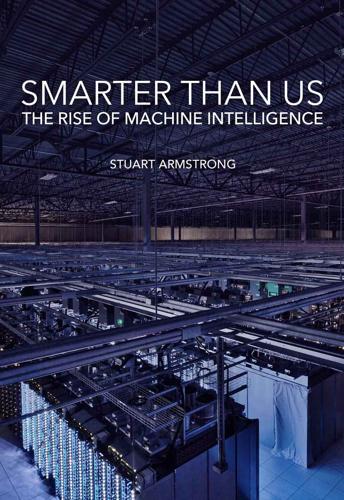
Smarter Than Us: The Rise of Machine Intelligence
by
Stuart Armstrong
Published 1 Feb 2014
To whatever extent we have goals, we have goals that can be accomplished to greater degrees using sufficiently advanced intelligence. When considering the likely consequences of superhuman AI, we must respect both risk and opportunity.2 * * * 1. See also Luke Muehlhauser, “Four Focus Areas of Effective Altruism,” Less Wrong (blog), July 9, 2013, http://lesswrong.com/lw/hx4/four_focus_areas_of_effective_altruism/. 2. Luke Muehlhauser and Anna Salamon, “Intelligence Explosion: Evidence and Import,” in Eden et al., Singularity Hypotheses. About the Author After a misspent youth doing mathematical and medical research, Stuart Armstrong was blown away by the idea that people would actually pay him to work on the most important problems facing humanity.
…
Pasadena, CA: NASA, November 10, 1999. ftp://ftp.hq.nasa.gov/pub/pao/reports/1999/MCO_report.pdf. Metz, Cade. “Google Mistakes Entire Web for Malware: This Internet May Harm Your Computer.” The Register, January 31, 2009. http://www.theregister.co.uk/2009/01/31/google_malware_snafu/. Muehlhauser, Luke. “Four Focus Areas of Effective Altruism.” Less Wrong (blog), July 9, 2013. http://lesswrong.com/lw/hx4/four_focus_areas_of_effective_altruism/. Muehlhauser, Luke, and Louie Helm. “The Singularity and Machine Ethics.” In Eden, Søraker, Moor, and Steinhart, Singularity Hypotheses. Muehlhauser, Luke, and Anna Salamon. “Intelligence Explosion: Evidence and Import.” In Eden, Søraker, Moor, and Steinhart, Singularity Hypotheses.
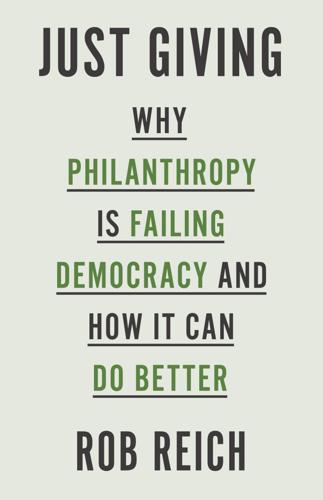
Just Giving: Why Philanthropy Is Failing Democracy and How It Can Do Better
by
Rob Reich
Published 20 Nov 2018
Philanthropy calls out for an analysis through republican political theory, alert to questions of domination by philanthropists.¹ Finally, consider the rise of effective altruism, a movement inspired largely by philosophers that seeks to move donors to maximize the good they do with their donations (and career choices). Effective altruists have a powerful private morality for informing giving—fund proven and highly effective charitable organizations that maximize human or animal welfare—but they have ignored the implications for public morality.² In addition to questions concerning paternalism, dependence, and effective altruism, a host of recent developments in the institutional patterns of philanthropy cry out for the attention of political theorists, social scientists, and investigative journalists.
…
Singer introduced his basic argument in 1972 in his “Famine, Affluence, and Morality,” Philosophy and Public Affairs 1 (1972): 229–243, and to the extent philosophers have written about philanthropy or charity, Singer’s argument has dominated discussion. In recent years Singer has made efforts to popularize his view, e.g., The Life You Can Save: How to Do Your Part to End World Poverty (New York: Random House, 2010); The Most Good You Can Do: How Effective Altruism Is Changing Ideas about Living Ethically (New Haven, CT: Yale University Press, 2015). For another philosopher’s defense of effective altruism, see William MacAskill, Doing Good Better (New York: Gotham Books, 2015). 13. Robert D. Putnam, Bowling Alone: The Collapse and Revival of American Community (New York: Simon & Shuster, 2000); Theda Skocpol, Diminished Democracy: From Membership to Management in American Civic Life (Norman: University of Oklahoma Press, 2003); Theda Skocpol and Morris Fiorina, eds., Civic Engagement in American Democracy (Washington, DC: Brookings Institution Press, 1999); Nancy Rosenblum and Robert Post, eds., Civil Society and Government (Princeton, NJ: Princeton University Press, 2002); Simone Chambers and Will Kymlicka, eds., Alternative Conceptions of Civil Society (Princeton, NJ: Princeton University Press, 2002); Mark Warren, Democracy and Association (Princeton, NJ: Princeton University Press, 2001); Victor M.
…
For-profit philanthropy in the form of an LLC threatens to unleash the power of wealthy elites in an especially nontransparent and unaccountable manner. It permits, in Jane Mayer’s memorable phrase, the weaponization of philanthropy through the dissemination of dark money.⁵ How should a democratic society regard for-profit philanthropy? To answer questions about paternalism, dependence, effective altruism, DAFs, and LLCs, we need a framework for evaluating what the role of philanthropy should be in a liberal democratic society. We need more attention paid by scholars and journalists to the phenomenon of philanthropy. Regardless of my particular conclusions, or for that matter of the approach to the political theory of philanthropy I develop and defend, I will count my efforts a success if this book shows why we need to think about philanthropy more seriously in philosophy and in society more generally.
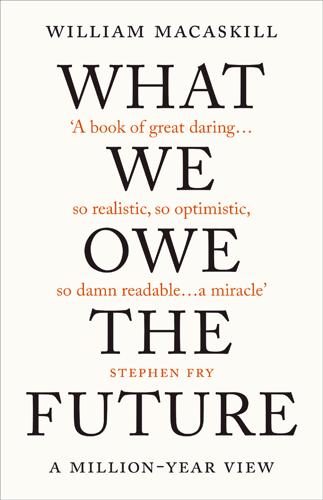
What We Owe the Future: A Million-Year View
by
William MacAskill
Published 31 Aug 2022
For Holly William MacAskill is an associate professor in philosophy and senior research fellow at the Global Priorities Institute, University of Oxford. At the time of his appointment, he was the youngest associate professor of philosophy in the world. He has focused his research on moral uncertainty, effective altruism, and future generations. A TED speaker and past Forbes 30 Under 30 social entrepreneur, he also cofounded the nonprofits Giving What We Can, the Centre for Effective Altruism, and Y Combinator-backed 80,000 Hours, which together have moved over £200 million to effective charities. He is the author of Doing Good Better and lives in Oxford. A Oneworld Book First published in Great Britain, the Republic of Ireland and Australia by Oneworld Publications, 2022 This ebook edition published 2022 Published by arrangement with Basic Books, an imprint of Perseus Books LLC, a subsidiary of Hachette Book Group, Inc.
…
In order to test out her potential as a writer, while in college she wrote one thousand words a day for her blog.26 It turned out that she was good at it. Blogging helped her figure out that writing was the right path for her and helped her to eventually get a job at Vox’s Future Perfect, which covers topics relevant to effective altruism, including global poverty, animal welfare, and the longterm future. When you are thinking about exploration, I think it is good to aim high, to focus on “upside options”—career outcomes that have perhaps only a one-in-ten chance of occurring but would be great if they did. Shooting for the moon is not always good advice.
…
Some people are happiest locked away for months on end researching abstruse topics in economics or computer science, while others excel at managing a team or communicating ideas in a simple and engaging way. You might also have some unique opportunities that other people don’t have. Marcus Daniell is a professional tennis player from New Zealand. He is one of the top fifty doubles players in the world, and he won a bronze medal in doubles at the 2021 Tokyo Olympics. After learning about effective altruism, Marcus set up High Impact Athletes, which encourages professional athletes to donate to effective charities working on global development, animal welfare, and climate change. People who have donated through High Impact Athletes include Stefanos Tsitsipas, the current number four tennis player in the world, and Joseph Parker, a former world heavyweight champion boxer and sparring partner for Tyson Fury.
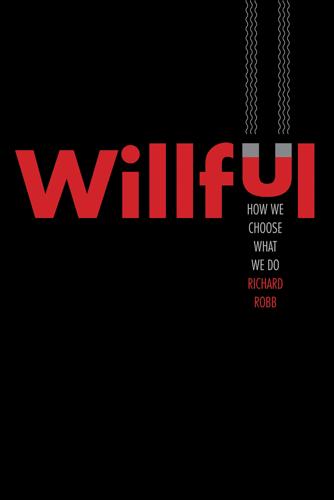
Willful: How We Choose What We Do
by
Richard Robb
Published 12 Nov 2019
The woman saving her husband is acting outside of a purposeful calculation, while the mother can be modeled in terms of her preferences. The Rotten Kid Theorem involves observed care for a limited number of people. Another type of observed care, effective altruism, encompasses multitudes. It stems from concern over the well-being of everyone in the world, often including animals. The Australian philosopher Peter Singer, a prominent advocate of effective altruism, abides by the principle that people who live in rich countries are morally obligated to support charities that aid the global poor. He equates spending on luxuries when some people are starving to letting a child drown because you don’t want to muddy your clothes.5 Effective altruists don’t give more to people geographically close to them than to those far away.
…
To save another fifty cents per day, they might have to cut out coffee altogether. Eventually, they reach the point where the satisfaction from the last dollar directed to their own consumption equals the marginal value they attribute to one more dollar donated to the poor. The largesse required for effective altruism of course depends on wealth and preferences. The test is whether a person gives enough to significantly affect her lifestyle and whether she gives to the causes she judges to be most beneficial to humankind. Then there are extreme effective altruists. Like their plain vanilla counterparts, extreme effective altruists give where they believe they can do the most good.
…
But extreme altruists feel extraordinarily deep bonds with everyone in the world and give until the extra cost in foregone satisfaction from a dollar spent on themselves equals its perceived benefit to a needy person. In contrast with ordinary effective altruists, they put themselves on equal footing with the rest of humanity, asking, “Do I need this more than a faraway stranger?” The significant income transfer required makes extreme effective altruism very rare. It’s an exceptional person whose well-being depends so intensely on the well-being of strangers.6 UNOBSERVED CARE To become observable, care altruism must involve strongly felt bonds. But care can, and often does, exist at levels too low to catalyze action. Someone who cares but not enough to act exemplifies what I’ll call “unobserved care.”
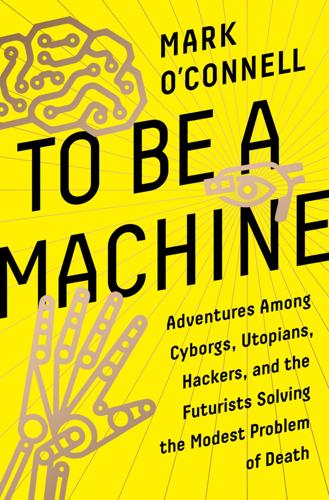
To Be a Machine: Adventures Among Cyborgs, Utopians, Hackers, and the Futurists Solving the Modest Problem of Death
by
Mark O'Connell
Published 28 Feb 2017
The conference had substantially focused on questions of AI and existential risk. Thiel and Musk, who’d spoken on a panel at the conference along with Nick Bostrom, had been influenced by the moral metrics of Effective Altruism to donate large amounts of money to organizations focused on AI safety. Effective Altruism had significant crossover, in terms of constituency, with the AI existential risk movement. (In fact, the Centre for Effective Altruism, the main international promoter of the movement, happened to occupy an office in Oxford just down the hall from the Future of Humanity Institute.) It seemed to me odd, though not especially surprising, that a hypothetical danger arising from a still nonexistent technology would, for these billionaire entrepreneurs, be more worthy of investment than, say, clean water in the developing world or the problem of grotesque income inequality in their own country.
…
A lot of MIRI’s funding came in the form of smallish donations from concerned citizens—people working in tech, largely: programmers and software engineers and so on—but they also received generous endowments from billionaires like Peter Thiel and Elon Musk. The week that I visited MIRI happened to coincide with a huge conference, held at Google’s headquarters in Mountain View, organized by a group called Effective Altruism—a growing social movement, increasingly influential among Silicon Valley entrepreneurs and within the rationalist community, which characterized itself as “an intellectual movement that uses reason and evidence to improve the world as much as possible.” (An effectively altruistic act, as opposed to an emotionally altruistic one, might involve a college student deciding that, rather than becoming a doctor and spending her career curing blindness in the developing world, her time would be better spent becoming a Wall Street hedge fund manager and donating enough of her income to charity to pay for several doctors to cure a great many more people of blindness.)
…
She and I and her husband, Janos, a Hungarian-Canadian mathematician and former research fellow at MIRI, were the only diners in an Indian restaurant on Berkeley’s Shattuck Avenue, the kind of cavernously un-fancy setup that presumably tended to cater to drunken undergraduates. Viktoriya spoke between forkfuls of an extremely spicy chicken dish, which she consumed with impressive speed and efficiency. Her manner was confident but slightly remote, and, as with Nate, characterized by a minimal quantity of eye contact. She and Janos were in the Bay Area for the Effective Altruism conference; they lived in Boston, in a kind of rationalist commune called Citadel; they had met ten years ago at a high school math camp, and had been together since. “The concerns of existential risk fit into that value metric,” elaborated Viktoriya. “If you consider balancing the interests of future people against those who already exist, reducing the probability of a major future catastrophe can be a very high-impact decision.
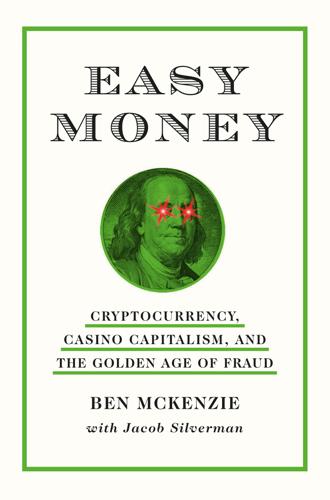
Easy Money: Cryptocurrency, Casino Capitalism, and the Golden Age of Fraud
by
Ben McKenzie
and
Jacob Silverman
Published 17 Jul 2023
See specific topics Cultish (Montell) Damon, Matt Davidson, Warren Davies, Dan Davies, Kyle decentralized autonomous organizations (DAOs) decentralized finance (DeFi) Dell, Michael Democratic Party Devasini, Giancarlo Dietderich, Andrew Digital Assets and Registered Exchanges Act (DARE) Digital Commodities Consumer Protection Act (DCCPA) DiPascali, Frank Dirty Bubble Media (James Block) Dogecoin Do Kwon Donalds, Byron Dorsey, Jack double spend problem Duffy, Sean Duffy, Terry D’Urso, Joey effective altruism (EA) Effective Altruism Forum eGold Ellison, Caroline El Salvador Emmer, Tom Enron Escobar, Carmen Valeria Ethereum EthereumMax Eun Young Choi “Even Donald Trump Knows Bitcoin Is a Scam” (Silverman) Excapsa exchange-traded funds (ETFs) Extraordinary Popular Delusions and the Madness of Crowds (MacKay) Faux, Zeke Federal Bureau of Investigation (FBI) Federal Deposit Insurance Corporation (FDIC) Federal Reserve Federal Trade Commission financial crisis (2008) Financial Times FOMO (fear of missing out) Forbes forex trading Fortune fraud.
…
Sam excelled when it came to quantitative reasoning, and graduated from the Massachusetts Institute of Technology in 2014 with a major in physics and a minor in math. While at MIT, Sam had a life-changing encounter with Will MacAskill, a proponent of a philosophical craze sweeping through Silicon Valley called effective altruism (EA). Conceptually, EA is straightforward: If you want to do the most good for the most people, you should strive to make the most money possible in order to give it all away. Philosophically, EA is predicated on utilitarianism, the doctrine that actions are right if they provide the most usefulness (utility) and benefit to the majority.
…
Utilitarianism, whose roots stretch as far back as Jeremy Bentham in the eighteenth and early nineteenth centuries, has always struggled to answer these basic questions satisfactorily. That said, if utilitarianism were to ever be practicable in real life, Sam’s mathematical mind was as good a fit as any. He was born into it, steeped in his parents’ own belief in utilitarianism. Effective altruism immediately resonated with him. Sam later claimed he had found his mission in life: Make a bunch of money and then give it away. Or as MacAskill put it: “Earn to give.” In order to advance Sam’s EA aspirations, MacAskill offered him a piece of advice: Apply for an internship at Jane Street Capital.
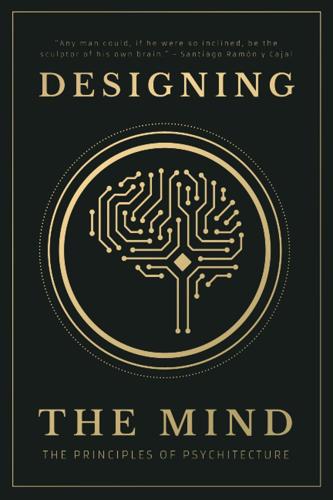
Designing the Mind: The Principles of Psychitecture
by
Designing The Mind
and
Ryan A Bush
Published 10 Jan 2021
Paul Bloom, Against Empathy: The Case for Rational Compassion, n.d. Barbara Oakley et al., eds., Pathological Altruism. Chapter 2: Empathy-Based Pathogenic Guilt, Pathological Altruism, and Psychopathology, n.d. “Introduction to Effective Altruism,” Effective Altruism, accessed November 25, 2020, https://www.effectivealtruism.org/articles/introduction-to-effective-altruism/. Paul Bloom, “The Baby in the Well,” The New Yorker, accessed November 25, 2020, https://www.newyorker.com/magazine/2013/05/20/the-baby-in-the-well. Shoyu Hanayama, “Christian ‘Love’ and Buddhist ‘Compassion,’” Journal of Indian and Buddhist Studies (Indogaku Bukkyogaku Kenkyu) 20, no. 1 (1971): 464–455, https://doi.org/10.4259/ibk.20.464.
…
Bloom argues that the people we typically think of as lacking empathy - psychopaths - are generally more lacking in impulse control, and that exceptional altruists are more likely to be high in self-control than in empathy.45 Those who praise empathy need to keep in mind that however noble it may seem, it is still an emotion. It does not consider facts or consequences, and if you do not maintain conscious control over your compassion, it will not serve a useful purpose.46 The effective altruism movement encourages people to look at how much good their actions will do, rather than simply donating money or time to whichever advertisement or cause more effectively stirs up their empathy.47 Following these principles may cause you to seem cold at times, but remember that emotions must be tamed to be used intelligently and effectively.
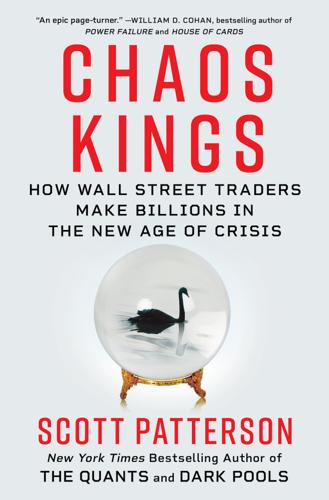
Chaos Kings: How Wall Street Traders Make Billions in the New Age of Crisis
by
Scott Patterson
Published 5 Jun 2023
Bankman-Fried, who’d become known for his unruly shock of curly hair and aversion to business suits, was an adherent of an increasingly influential semi-apocalyptic worldview known as longtermism—a movement that shared elements of Taleb’s precautionary principle. It was an outgrowth of a moral philosophy developed in the 2000s known as effective altruism, a quantitative philanthropic method designed to estimate probabilities about which causes were most important in terms of humanity’s well-being. Will alleviating global poverty do more good than preparing for the next pandemic? Will preparing for a killer AI be more effective than spending money to send a human colony to Mars? By the early 2020s, more than $40 billion had been invested in the effective-altruism movement, and its members were advising top officials in the United Nations and the U.S. government.
…
Advocates were making multibillion-dollar bets on space exploration and colonization, the symbiosis between humans and AI (to hopefully outrace or defeat our future superintelligent AI overlords), and genetic engineering (of humans, animals, and foods). It was, in a way, the polar opposite of the precautionary principle, advocating extreme Hail Mary experimentation in order to secure humanity’s boundless future. Causes the Longtermists cared less about? Poverty, an issue that had initially launched the effective altruism movement; health care; causes of inequity; and wealth gaps between nations. The debates the Longtermists sparked inspired weird and dystopian notions of who deserved to live—or die. Nick Beckstead, a prominent Longtermist at Oxford University, wrote in his doctoral thesis that since wealthier countries “have substantially more innovation, and their workers are much more economically productive” it makes sense to him that “saving a life in a rich country is substantially more important than saving a life in a poor country.”
…
Nick Beckstead, a prominent Longtermist at Oxford University, wrote in his doctoral thesis that since wealthier countries “have substantially more innovation, and their workers are much more economically productive” it makes sense to him that “saving a life in a rich country is substantially more important than saving a life in a poor country.” Bostrom floated the idea of putting a tracking device on every person in the world to make sure no one was cooking up a humanity-killing virus in their basement. Peter Singer, the Princeton philosopher and ethicist whose work inspired many of the founders of effective altruism, saw longtermist thinking as a threat. “The dangers of treating extinction risks as humanity’s overriding concern should be obvious,” he wrote in an October 2021 article. “Viewing current problems through the lens of existential risk to our species can shrink those problems to almost nothing, while justifying almost anything that increases our odds of surviving long enough to spread beyond Earth.”
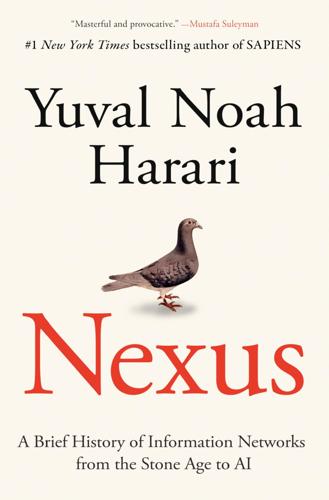
Nexus: A Brief History of Information Networks From the Stone Age to AI
by
Yuval Noah Harari
Published 9 Sep 2024
Emily Washburn, “What to Know About Effective Altruism—Championed by Musk, Bankman-Fried, and Silicon Valley Giants,” Forbes, March 8, 2023, www.forbes.com/sites/emilywashburn/2023/03/08/what-to-know-about-effective-altruism-championed-by-musk-bankman-fried-and-silicon-valley-giants/; Alana Semuels, “How Silicon Valley Has Disrupted Philanthropy,” Atlantic, July 25, 2018, www.theatlantic.com/technology/archive/2018/07/how-silicon-valley-has-disrupted-philanthropy/565997/; Timnit Gebru, “Effective Altruism Is Pushing a Dangerous Brand of ‘AI Safety,’ ” Wired, Nov. 30, 2022, www.wired.com/story/effective-altruism-artificial-intelligence-sam-bankman-fried/; Gideon Lewis-Kraus, “The Reluctant Prophet of Effective Altruism,” New Yorker, Aug. 8, 2022, www.newyorker.com/magazine/2022/08/15/the-reluctant-prophet-of-effective-altruism. 39.
…
Emily Washburn, “What to Know About Effective Altruism—Championed by Musk, Bankman-Fried, and Silicon Valley Giants,” Forbes, March 8, 2023, www.forbes.com/sites/emilywashburn/2023/03/08/what-to-know-about-effective-altruism-championed-by-musk-bankman-fried-and-silicon-valley-giants/; Alana Semuels, “How Silicon Valley Has Disrupted Philanthropy,” Atlantic, July 25, 2018, www.theatlantic.com/technology/archive/2018/07/how-silicon-valley-has-disrupted-philanthropy/565997/; Timnit Gebru, “Effective Altruism Is Pushing a Dangerous Brand of ‘AI Safety,’ ” Wired, Nov. 30, 2022, www.wired.com/story/effective-altruism-artificial-intelligence-sam-bankman-fried/; Gideon Lewis-Kraus, “The Reluctant Prophet of Effective Altruism,” New Yorker, Aug. 8, 2022, www.newyorker.com/magazine/2022/08/15/the-reluctant-prophet-of-effective-altruism. 39. Alan Soble, “Kant and Sexual Perversion,” Monist 86, no. 1 (2003): 55–89, www.jstor.org/stable/27903806. See also Matthew C. Altman, “Kant on Sex and Marriage: The Implications for the Same-Sex Marriage Debate,” Kant-Studien 101, no. 3 (2010): 332; Lara Denis, “Kant on the Wrongness of ‘Unnatural’ Sex,” History of Philosophy Quarterly 16, no. 2 (April 1999): 225–48, www.jstor.org/stable/40602706. 40.
…
When creating the computer network, we just need to instruct it to minimize suffering and maximize happiness. If Facebook had told its algorithms “maximize happiness” instead of “maximize user engagement,” all would allegedly have been well. It is worth noting that this utilitarian approach is indeed popular in Silicon Valley, championed in particular by the effective altruism movement.38 Unfortunately, as with the deontologist solution, what sounds simple in the theoretical realm of philosophy becomes fiendishly complex in the practical land of history. The problem for utilitarians is that we don’t possess a calculus of suffering. We don’t know how many “suffering points” or “happiness points” to assign to particular events, so in complex historical situations it is extremely difficult to calculate whether a given action increases or decreases the overall amount of suffering in the world.
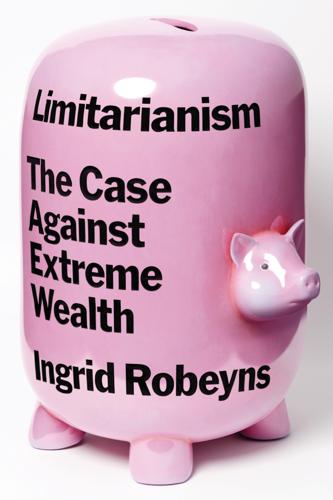
Limitarianism: The Case Against Extreme Wealth
by
Ingrid Robeyns
Published 16 Jan 2024
Large-scale philanthropy will always be problematic because of this power asymmetry. The other concern lies in the assumption that philanthropists will know what is needed. This concern has often been raised in relation to the effective altruism movement, which calls upon small and large donors to donate generously, but only in ways that are proven to be most effective by impact studies. Some versions of effective altruism go even further and call upon us to earn as much as possible, by almost whatever means possible—including by working in corporations that are at the heart of neoliberal capitalism. This is an essentially technocratic approach to addressing social problems, as if all the requisite information could be deduced from impact studies.
…
A. 161 collective-action problems 158–9, 182, 212 collective decision-making 74–5, 212 collective organizing 220 Collins, Chuck 8, 67, 193, 201 colonialism 21, 73 Columbia University, New York 90 Center for Sustainable Development 153 communism xx, 206–8 confiscation confiscatory tax 114, 122 of wealth xiv, xviii, 47, 223 Congress, US 83 Conservative Party, British 92 conservatives xxi, xxi, xxv, xxvii, 51, 85–7, 89, 104–6, 120, 148, 169, 173, 176 consumer 39 climate change and 103, 104, 111, 113 communism and 207 consumer durables 28 consumer goods 36, 104, 111, 112, 117, 134, 207 demand 6, 39 neoliberal ideology and 191, 202, 216 oil and 48 platform economy and 210 profit-shifting and 66 regulation and 209 tax and 167 uncorrected market failures and 134 Cook, Tim 137 Cornell University 164, 165 corporations climate change and 103, 104 effective altruism and 179 Global North power and 23 irresponsibility 55 ladder of ambition within 6 monopoly and 160 regulation of 213 state subsidies and 35 tax and 39, 65–6, 77, 90, 225 corruption 47–52, 57, 64, 81, 95, 148–9, 153 Covid–19 pandemic (2020–22) 18, 39, 39, 144 Credit Suisse 24 crime 9, 49, 64, 78, 197 crimes against humanity 43–5 Crimean Peninsula, annexation of (2014) 51 crowdfunding 178 crowding out effect 176 Csikszentmihalyi, Mihaly 196 Cyprus 78 Davis, Abigail 10 Davos Men 91–3.
…
See also World Economic Forum (WEF) declining marginal value of money 146, 184 degrowth 213 democracy collective decision-making and 74–5 commodification of citizenship 77–80 corruption in 48 Davos Men and 91–3 equality and 31 illiberal democracies 73, 77, 94 kleptocratic practices in 51–2 liberal democracies 73–4, 94, 141, 180, 219, 222 lobbyists and 84 media outlets, super-rich ownership of and 86–9 neoliberalism and 216 persuasion and xxvi philanthropy and 175–9 political funding and 80–84 property-owning democracy 213 research body/think tank donations and 89–90 transnational capitalist class 92 Universal Declaration of Human Rights and 72 wealth undermining 71, 72–95, 106, 116–17, 139 Democratic Party, US xxi denial machine 104–6, 113 dental care 26 deregulation 35, 54, 89, 90, 210 Desmond, Matthew: Poverty, by America 37 dichotomous thinking 208 Dietsch, Peter 222 direct cash transfers 152 business practices, harmful 52 corporate irresponsibility 55 corruption 47–52 crimes against humanity and 43–5 dirty money 41–71, 76, 78, 105, 112, 118, 124, 166, 222 labor rights, violation of 57 letting others pay for your mistakes 54 tax dodging 60–8 disabilities 14, 31, 56, 75, 132, 133, 155, 157, 171, 200 discovery argument 177–8 discrimination 125 Disney xxv, 156, 172 Disney, Abigail xxv, 32, 156, 172–4, 193–4, 195, 199, 217 Disneyland, California 156 distributive justice 106 Dominion 88 doughnut economy 213 Dow Chemical Company 56–7 Drèze, Jean 21 drought 99 Duke University 204 Dutch Labour Party 141 Duty Free Shoppers (DFS) 164–5 economic growth 22, 34, 39, 159, 189 economic power, balance of 219–221 economic systems 33, 91, 120, 181, 229 alternative/new 208–14 economy of the common good 213 education access to xv, 14, 18, 143 class/social integration and 30, 33, 35, 218 disabilities/developmental disorders and 157–8 free high-quality xv, 14, 143 neoliberalism and 217 non-financial incentives 163 effective altruism 179 efficiency 31, 170–71, 172, 210, 216 elephant graph 21 Elizabeth II, Queen 7 empathy 198, 199, 217 Engelhorn, Marlene 8, 65 entrepreneurship xxv, 11 climate change and 106 good life and 141 inheritance and 133, 134, 139 institution-building and 149 neoliberalism and 159, 162 philanthropy and 18, 164, 166 poverty 36, 92 “profits before people” philosophy and 57 tax and 35, 60, 62, 70, 161 World Economic Forum and 42 envy xiii, xx–xxii equality awareness of inequality levels xii, 8, 190, 204–6 capitalism and see capitalism class and 31–2 climate change and 97, 101, 104 democracy and 72–6, 80, 82–5, 94–5, 190 doughnut economy and 213 envy and xxii equal opportunity 73, 142 gender and race dimension to wealth inequality 28 Global North/Global South trade relations and 23, 136 health of economy and 39 importance of inequality 36–7 increase in inequality xii, xxiii, 2–3, 5, 27–9, 32–3, 38, 41, 61, 122, 200, 210, 218 inheritance and 122, 123 limitarianism and xviii, xx–xxi, 212 London and see London morality, wealth inequality and xiii, xiv, xvii, xxv, xxvi, 15, 16, 24, 36, 118, 120, 122, 125, 134, 136, 138, 148, 161, 187, 188, 193, 194, 197, 198, 199, 212, 225 neoliberalism and 34–5 Oxfam report on inequality 3, 17 pay and 126, 131, 132, 224 philanthropy and 168, 169, 172, 175–6 political upheaval and 189 poverty and see poverty structural action and xv super-rich warn against xxi, 188–9 types of inequality 25–26 wealth inequalities within countries, increasing 27–8 wealth inequalities within countries, size of 26 work and 220–21 Equatorial Guinea 47, 76 ethical limit xviii, 12, 15–6, 93, 117, 139, 186 European Commission 79, 84 European Union (EU) 78, 79, 84, 87, 105, 223 Extinction Rebellion 114 Exxon Mobile 96, 98, 105 famine 99, 149 fashion industry 57–8, 135, 142, 223 “fast” fashion 57–8, 135, 142 Feeney, Charles “Chuck” xxiii, 164–7, 218 Felber, Christian 213 financial crisis (2008) xii, 2, 9, 54, 55, 210 Financial Times 128 fiscal action xvi, xvi fiscal agency 221–2 “flexible” jobs 210 flooding 75, 99, 113 Floyd, George 191, 192 Follow This 97 Food and Drug Administration, US 53 food banks 2, 156, 167, 176 food consumption 108 food poverty 150 Forbes xi, 23, 50, 53, 58, 66, 133, 135, 157, 165 Forum voor Democratie (Forum for Democracy) 51 Fox News 87–8 France 24, 25, 27, 31, 45, 46, 92 Free University of Amsterdam’s Climate and Sustainability Law Clinic 102 full determinism 131–2 Gates, Bill xi, xxi, 8, 18, 137, 165, 177; How to Avoid a Climate Disaster 113 gender 21, 28, 73, 190, 194 General Motors 98, 194 Gilens, Martin 83 Giridharadas, Anand 91, 92; The Persuaders xxvi Giving What We Can 185 Glasser, Susan 89 globalization 20, 26, 32, 92 Global North extreme wealth concentrated in 25 fashion brands in 58 migration into 79, 94 mixed economy in 209 oil business and 48 refugees in 79 unequal exchange and 23, 136, 153 Global South climate change and 94 crop yields in 100 exploitation of 21, 23, 136, 153 extreme poverty in 2 golden visas and 80 labor in 154 limitarian ethos and 186 unequal exchange and 23, 136 Global Wealth Report 24 golden passport 77–8 golden visa 77–80 Goldman Sachs xvii Good Ancestor Movement 183, 192 good life xxiii, 11–3, 124, 141, 148, 182, 186, 201 Goodman, Peter 91, 92 Google 66, 137 Google Holdings 66 Green, Fergus 224 Greene King 47 Greenfield, Lauren 195; Generation Wealth 195 greenhouse gases 36, 85, 90, 96–7, 100, 101, 106, 108 Greenpeace 96 green transition 105, 108, 111, 114–116 greenwashing 115 Grenada 47 gun regulation 90 Gupta, Rajat 196 Haarmann, Claudia 235 Haarmann, Dirk 149 Haiti 46 Hamm, Jon 129 Hanauer, Nick: “The Pitchforks are Coming … for Us Plutocrats” 188–9 Harvard Business School 204 Harvard University 90 Haslett, D.
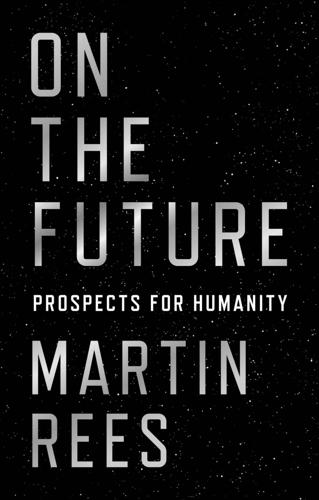
On the Future: Prospects for Humanity
by
Martin J. Rees
Published 14 Oct 2018
A special obligation lies on those in academia or on self-employed entrepreneurs; they have more freedom to engage in public debate than those employed in government service or in industry. Academics, moreover, have the special opportunity to influence students. Polls show, unsurprisingly, that younger people, who expect to survive most of the century, are more engaged and anxious about long-term and global issues. Student involvement in, for instance, ‘effective altruism’ campaigns is burgeoning. William MacAskill’s book Doing Good Better8 is a compelling manifesto. It reminds us that urgent and meaningful improvements to people’s lives can be achieved by well-targeted redeployment of existing resources towards developing or destitute nations. Wealthy foundations have more traction (the archetype being the Bill & Melinda Gates Foundation, which has had a massive impact, especially on children’s health)—but even they cannot match the impact that national governments could have if there were pressure from their citizens.
…
Jared Diamond, Collapse: How Societies Choose to Fail or Succeed (New York: Penguin, 2005). 7. Lewis Dartnell, The Knowledge: How to Rebuild Our World from Scratch (New York: Penguin, 2015). Books such as this are educative. It’s surely regrettable that so many of us are ignorant of the basic technologies we depend on. 8. William MacAskill, Doing Good Better: Effective Altruism and How You Can Make a Difference (New York: Random House, 2016). 9. The Future of Man (1959). INDEX Africa: information technology in, 27, 28, 83, 84; Mo Ibrahim Prize for leadership in, 28–29; papal message resonating in, 34; population trends in, 30–31; solar energy in, 49 aging.
…
See also genomes Doing Good Better (MacAskill), 224 Drake, Frank, 156 driverless vehicles, 92–95, 102–3 drones: automated warfare with, 101; delivery by means of, 94; in Middle East but controlled from U.S., 100–101 drug design, by computers, 191–92 Dyson, Freeman, 78–79, 106, 161, 179–80 Dyson sphere, 161 Earth: Gaia hypothesis about, 216; history of, over 45 million centuries, 1–2; no escape in space from problems of, 150; as only world known to harbor life, 121; possible twins of, 131; stewards in a crucial era for, 10 earthquakes, 16 economic growth, sparing of resources, 26 education: global inequality and, 26, 220; internet and, 83, 220; life-long learning, 98–99; now improved for most people, 6; of women, 30 edX, 98 E-ELT (European Extremely Large Telescope), 134–35, 137 effective altruism, 224 Ehrlich, Paul, 22 Einstein, Albert, 168 Einstein’s theory of relativity: black holes and, 166; constant speed of light and, 204; the general theory, 166, 180, 184; relation to Newtonian physics, 205 electric cars, 46–47, 50 electricity grids: catastrophic breakdown of, 108–9; cyberattack on, 21; disrupted by solar flares, 16; high-voltage direct current (HVDC), 50; optimised by AI, 88 embryo research, 65, 73–74 emergent properties, 176–77, 187, 214 Enceladus, 128 energy demands: for agriculture, 23–24; of computers, 88; of growing population, 215; need of global planning for, 217, 219 energy efficiency, 46–47 energy generation, low-carbon, 47–57 energy management, of Google’s data farms, 88 energy storage, 48, 49–50, 51 engineering: aeronautical, 192; in agriculture, 23; basic physics and, 166; challenge of, 202 environmental degradation, 21, 215, 226 environmentalist worldview, 33 environmental policies, planning horizon for, 45 ethics: artificial intelligence and, 105; in biotech, 73–75; medical advances and, 69–74; scientists’ involvement with issues of, 74–75, 221–24; technology guided by, 226; of values that science can’t provide, 227 eugenics, 22, 69 Europa, 128, 129 European Extremely Large Telescope (E-ELT), 134–35, 137 evolution: bottlenecks in, 155–56, 158; creationism and, 195, 196; as great unifying idea, 175; intelligent design and, 196, 197; religious students of science and, 200; as vital part of common culture, 214.
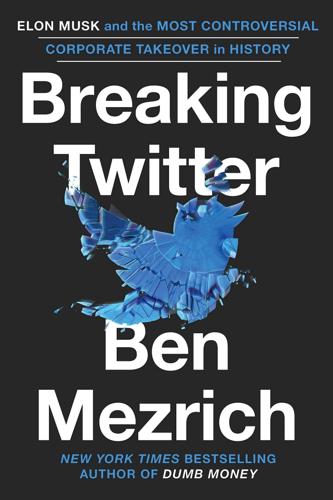
Breaking Twitter: Elon Musk and the Most Controversial Corporate Takeover in History
by
Ben Mezrich
Published 6 Nov 2023
In this instance, money was truly a means to an end; a philosophy, which, ironically, had led to this morning’s video chat. The initial entreaty that had led to this call had come via Scottish philosopher and social entrepreneur Will MacAskill. MacAskill was one of the originators of the “effective altruism” movement, and a guru to many a billionaire looking for ways to make the world better by giving away wealth. Effective altruism encouraged its proponents to be strategic in using wealth to make the world better, by focusing resources on interventions with proven positive results. Although Elon had never specifically identified with the theory, he’d also never been a fan of traditional philanthropy, which he believed was often ineffective and wasteful.
…
Watching SBF, as the kid rocked back and forth on the edge of the wicker, spouting phrases like “vision lock” and “social blockchain integration,” pinpoint eyes darting every direction but the camera, it was clear he was smart; likewise, considering the setting, and the stories surrounding him, his embrace of effective altruism made perfect sense. The idea that you could fix the world by making as much money as you could—in other words, get stinking rich to make the world better—meant not only did you get to solve world hunger or cure malaria, but you were able to do it from a wicker lounge chair on the balcony of a $40 million penthouse, overlooking a tropical beach.
…
The doughy kid might have been a genius, and he might not have been an NPC—but he was clearly playing a very different game. Elon had nothing, personally, against hedonism, when properly applied. He’d dated numerous celebrities and pop stars, been divorced three times, and had ten children. And he understood the logic of effective altruism, the primacy of Ends over Means. But in Elon’s simulation, the End he was striving toward was bigger than curing malaria or defeating world hunger. He was trying to save human civilization, and it would take more than carefully applied wealth to reach that goal. Twitter was a Means, not an End, and now that Elon had been dragged back into the deal to take it private—brought right back to the gate, which was primed and ready for him to bash through—there was no room for a partner who had calculated his way to paradise, no matter how many zeros he could draw on a check.
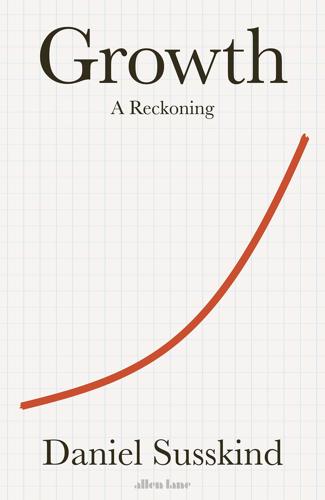
Growth: A Reckoning
by
Daniel Susskind
Published 16 Apr 2024
(Elon Musk, for instance, called it ‘a close match for my philosophy’).12 But it is also due to the stewardship of one of its standard-bearers, the philosopher William MacAskill, whose views on the limits to growth I explored in Chapter 8. MacAskill is also known for heading up another increasingly popular movement, ‘effective altruism’ (alongside philosophers such as Nick Bostrom and Toby Ord, among others). This is not a coincidence. The two movements are closely related. Effective altruism tries to calculate the best way to make the world a better place; long-termism is a particular idea for how to do it. And what is it? In the words of MacAskill, it is the ‘idea that positively influencing the long-term future is a key moral priority of our time’.13 Put that way, long-termism might sound benign: who could disagree with the idea that the future is important?
…
It presents an ideal of collective life, and it tries to show people one by one that they should want to live under it … An ideal, however attractive it may be to contemplate, is utopian if real individuals cannot be motivated to live by it. But a political system that is completely tied down to individual motives may fail to embody any ideal at all.’ 55 See, for instance, Parfit in the discussion of ‘effective altruism’ during his address to the Oxford Union, 10 October 2015. 56 See Ezra Klein, ‘Transcript: Ezra Klein Answers Listener Questions’, 31 August 2021, www.nytimes.com/2021/08/31/podcasts/transcript-ezra-klein-ask-me-anything.html. 57 Beckerman, quoted in John Cassidy, ‘Can We Have Prosperity Without Growth?’
…
Abrahamovitz, Moses, 287n31 Acemoglu, Daron, 45, 47, 211 Akerlof, George, 158 ‘Alignment Problem’, 124–7 Allen, Robert, 5–6, 209–10, 278n5 Alphabet (company), R&D (Research & Development), 188 AlphaFold (AI system), 200–2 Amazon, patents, 182 Anfinsen, Christian, 201 anti-globalization movements, 119 Apollo space mission, 189–90 Arrhenius, Svante, 100 artificial intelligence (AI): applications, 108–9; and medicine, 200; ‘paperclip maximiser’ thought experiment, 124–5; social narratives around, 244–5 Athenaeus, 178 Atkinson, Anthony, 104 Attenborough, David, 150 Attlee, Clement, 263 Australia, patents, 182 automation: threat of, 107–10; tradeoffs, 241–5 Autor, David, 116 Bacon, Francis, 46 Bankman-Fried, Sam, 261 Barnes & Noble, 182 Becker, Gary, 36 Beckerman, Wilfred, 160, 167, 222, 313n41 Bell, Daniel, 145 Bell Labs (company), 189 Bellman, Richard, 159 Berlin, Isaiah, 91, 145, 166, 173, 202, 305n53, 320n50 Bernanke, Ben, 76 Berne Convention, 181 Berners-Lee, Tim, 185 Beveridge, William, 77 Bhagwati, Jagdish, 116 Black Death, 16–18 black markets, and GDP, 134–5 Blair, Tony, 115, 268, 311n15 Blake, William, 209 Bohr, Niels, 191 Boisguillenber, Pierre Le Pesant de, 62 Bostrom, Nick, 125, 259 Boulding, Kenneth, 316n3 Bowman, James, 189 Boyle, James, 184 Bretton Woods Conference, 66 BRIC group, 174–5 Britain: Brexit referendum, 263–4; National Health Service (NHS), 128; Office for National Statistics, 134–5 Broadberry, Stephen, 278n10 capital fundamentalism, 30, 33 capitalism, and economic growth, 218–20 Caplan, Bryan, 143 carbon tax, 241 Carroll, Lewis, Through the Looking-Glass, 22 Chang, Ha-Joon, 246 Chang, Ruth, 315n59 China: industrial robots, 211; joins the WTO, 256–7 Chivers, Tom, 150 Chu, Steven, 151 Churchill, Winston, 95, 263 citizen assemblies, 266 Clark, Colin, 64 Clark, Gregory, 4–5, 10, 12–13, 278n5 climate change, and economic growth, 97–101, 235–41 Climate Change Conference (Egypt, 2022), 237 Club of Rome, The Limits of Growth (1972), 153–4 Cold War, and economic growth, 67–73 Coleridge, Samuel Taylor, 14 Collins, Robert, 333n2 communities, cost of globalization, 118–19 comparative advantage, theory of, 114–15 consensus conferences, 266 copyright, 179, 181 Covid-19 pandemic: and key workers, 138; and modelling, 224; technological consequences of, 212–16; vaccine, 200, 214; and work, 75 Cowen, Tyler, 85–6, 175, 187 Coyle, Diane, 293n3 Creative Commons (organization), 185 Daley, William, 293n6 Daly, Herman, Toward a Steady-State Economy (1973), 154 Darwin, Charles, 280n30 DeepMind (company), 189, 200, 202, 244 Deepwater Horizon oil spill (2010), 136 degrowth movement, 149–51 DeLong, Brad, Slouching Towards Utopia, 176 Dene, William de la, 17 Dennett, Daniel, 281n35 Diamond, Jared, Guns, Germs, and Steel, 45–6 Diderot, Denis, 179 digital technology, and political power, 111–14 diminishing returns, law of, 20–2 Domar, Evsey, 28, 58, 73, 285n20, 294n11, 294n12 see also Harrod-Domar model Dorling, Danny, 327n2 Dorsey, Jack, 113 DuPont (company), 189 Dworkin, Ronald, 112 Easterlin, Richard, 86 Easterly, William, 30 econometrics, 42–3 Economist, The (journal), 33 Edward III of England, 17 ‘effective altruism’, 259 Ehrlich, Paul, The Population Bomb (1968), 154 Einstein, Albert, 191, 196 Eliot, T. S., 24 Elliot, Larry, 305n57 Engels, Friedrich, 13, 19 Englert, François, 197 Enlightenment, 50–1 environment, and economic growth, 235–41 environmental disasters, and GDP, 136 ‘Eroom’s Law’, 196 eugenics, and the economics profession, 292n66 European Union (EU), GDP comparisons, 134–6 Eurostat (European statistical agency), 135 Facebook, R&D (Research & Development), 188 Feldstein, Martin, 139 Fioramonti, Lorenzo, 297n45 Fisher, William W., 183 Fitoussi, Jean-Paul, 145 Fitzgerald, F.
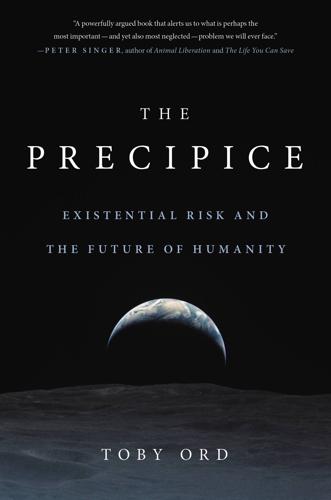
The Precipice: Existential Risk and the Future of Humanity
by
Toby Ord
Published 24 Mar 2020
And finding that my own money could do hundreds of times as much good for those in poverty as it could do for me, I made a lifelong pledge to donate at least a tenth of all I earn to help them.5 I founded a society, Giving What We Can, for those who wanted to join me, and was heartened to see thousands of people come together to pledge more than £1 billion over our lifetimes to the most effective charities we know of, working on the most important causes. Together, we’ve already been able to transform the lives of tens of thousands of people.6 And because there are many other ways beyond our donations in which we can help fashion a better world, I helped start a wider movement, known as effective altruism, in which people aspire to use evidence and reason to do as much good as possible. Since there is so much work to be done to fix the needless suffering in our present, I was slow to turn to the future. It was so much less visceral; so much more abstract. Could it really be as urgent a problem as suffering now?
…
Only we can make sure we get through this period of danger, that we navigate the Precipice and find our way to safety; that we give our children the very pages on which they will author our future. RESOURCES BOOK WEBSITE Videos • Mailing list • FAQs • Errata Supporting articles and papers • Quotations • Reading lists theprecipice.com AUTHOR WEBSITE Find out about my other projects • Read my papers Contacts for media and speaking tobyord.com EFFECTIVE ALTRUISM Meet others interested in having the greatest impact they can effectivealtruism.org CAREERS Advice on how to use your career to safeguard our future 80000hours.org DONATIONS Join me in making a lifelong commitment to helping the world through effective giving givingwhatwecan.org ACKNOWLEDGMENTS Few books are shaped by author alone.
…
Thank you to Josie Axford-Foster, Beth Barnes, Nick Beckstead, Haydn Belfield, Nick Bostrom, Danny Bressler, Tim Campbell, Natalie Cargill, Shamil Chandaria, Paul Christiano, Teddy Collins, Owen Cotton-Barratt, Andrew Critch, Allan Dafoe, Max Daniel, Richard Danzig, Ben Delo, Daniel Dewey, Luke Ding, Peter Doane, Eric Drexler, Peter Eckersley, Holly Elmore, Sebastian Farquhar, Richard Fisher, Lukas Gloor, Ian Godfrey, Katja Grace, Hilary Greaves, Demis Hassabis, Hiski Haukkala, Alexa Hazel, Kirsten Horton, Holden Karnofsky, Lynn Keller, Luke Kemp, Alexis Kirschbaum, Howie Lempel, Gregory Lewis, Will MacAskill, Vishal Maini, Jason Matheny, Dylan Matthews, Tegan McCaslin, Andreas Mogensen, Luke Muehlhauser, Tim Munday, John Osborne, Richard Parr, Martin Rees, Sebastian Roberts, Max Roser, Anders Sandberg, Carl Shulman, Peter Singer, Andrew Snyder-Beattie, Pablo Stafforini, Jaan Tallinn, Christian Tarsney, Ben Todd, Susan Trammell, Brian Tse, Jonas Vollmer, Julia Wise and Bernadette Young. Thanks also to Rose Linke, for her advice on how to name this book, and Keith Mansfield, for answering my innumerable questions about the world of publishing. This project benefited from a huge amount of operational support from the Future of Humanity Institute (FHI), the Centre for Effective Altruism (CEA) and the Berkley Existential Risk Initiative (BERI). My thanks to Josh Axford, Sam Deere, Michelle Gavin, Rose Hadshar, Habiba Islam, Josh Jacobson, Miok Ham Jung, Chloe Malone, Kyle Scott, Tanya Singh and Tena Thau. The actual writing of this book took place largely in the many wonderful libraries and cafés of Oxford—I especially need to thank Peloton Espresso, where I may have spent more time than in my own office.
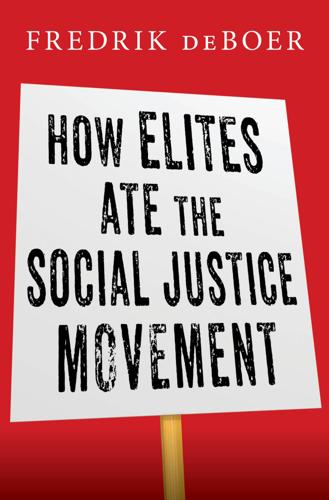
How Elites Ate the Social Justice Movement
by
Fredrik Deboer
Published 4 Sep 2023
It’s very difficult to tell what efficiency precisely means for a nonprofit, and this is part of the essential difficulty of philanthropic giving: deciding where to give depends on knowledge the average person doesn’t have and value judgments they’re ill-equipped to make. The world of “effective altruism,” a group of like-minded people who doggedly look for the best possible use of charitable funds, evolved precisely because of frustration with the inefficient use of charitable donations. The organization GiveWell, which directs potential donors to organizations that they see as unusually efficient in terms of achieving altruistic ends like saving lives, is frequently cited as a model of effective altruism. And their origin story depends entirely on the inefficiency and lack of transparency of traditional nonprofit charities.
…
B., 74 economic crisis (2008–2009), 15–16 economic insecurity, 189 economic justice, 135, 182 economic populism, 189–190 Economist, 70, 145 education of Black Americans, 66 nonprofit role in, 98 polarization of, 144–151 and self-identification as liberal, 136 spending on, 97 see also universities and colleges “effective altruism,” 102 Ehrenreich, Barbara, 65 Ehrenreich, John, 65 elections, 208 see also presidential elections elite capture deference politics contributing to, 155–156 of defunding police, 58 in Democratic Party, 31 in education, 144–151 in left politics, 8 of media, 144 of nonprofits, 105, 106 of racial discourse, 62–66 of social justice movement, 67 Elite Capture (Táíwò), 67, 155, 170 Ellison, Keith, 41, 125 Ellison, Ralph, 74 End of Policing, The (Vitale), 51 Engels, Friedrich, 215 Equal Justice Initiative, 50 external locus of control, 140–143 “Failure to Cope ‘Under Capitalism’ ” (Coffey), 140–141 Fang, Lee, 35 Fast Company, 108 fear, 34, 35 Fear and Loathing in Las Vegas (Thompson), 44 fighting for everyone, 193–215 by calling nonsense nonsense, 204–207 and the Democratic Party, 207–209 by finding opportunities for solidarity, 198–200 by not waiting for youth to revolt, 209–212 by organizing along class lines, 194–197 by recognizing reality, 212–215 by stating social benefits of beliefs, 203–204 by talking like human beings again, 200–202 Filipovic, Jill, 128 financial crisis (2008), 15–16, 18, 26, 29 Fiscal Times, 108 Floyd, George, 5–7, 33–37 Floyd murder, 51 appropriate response to, 94 convictions following, 39 demand for change following, 117 explosion of activism triggered by, 14, 33–37, 45–47 as flashpoint, 45 lack of fervor following, 14 “moral clarity” developed from, 36–37 proposed legislation after, 38–39, 50–51 protests of, 42, 81, 82, 94–95 and racial sensitivity, 68–69 rioting following, 82–84, 94–95 waning public attention to, 127 see also Black Lives Matter (BLM) Foran, Clare, 165 Ford Foundation, 107 foundations, 6–7 Frazier, Mansfield, 37 Freeman, Jo, 21–22 Freeman, Morgan, 125–126 Friedman, Barry D., 100, 101 Fukuyama, Francis, 171 Gardner, Sue, 108–109 gay marriage, 27, 188, 199, 214 gay rights issues, 2–3 gender identity, 173, 188 general case against nonprofits, 99–106 generational politics, 17–18 George Floyd Justice in Policing Act, 38–39, 49–51 German Ideology, The (Marx), 176 Gitlin, Todd, 192 GiveWell, 102–103 globalization, 171 Good White Men, 157–158 Gray, Freddie, 46 Great Recession, 15–16 Guevara, Che, 93 Haider, Asad, 169, 173–174 Hartford city government, 3 Harvard University, 108 health care system, 27, 31, 40 Heard, Amber, 40, 120–121 Heideman, Paul, 187 Hess, Diana, 146 Hispanic Americans, 64, 185 Hobsbawm, Eric, 175, 183 Hollywood Reporter, 122, 123 home ownership, 47–48 homophobia, 168–169, 172–173, 176–177 Hood, John, 143 horizontal organizing, 21–24 housing activism, 113 “How Calling Someone a ‘Class Reductionist’ Became a Lefty Insult” (Haider), 169, 173–174 Humphrey, Hubert, 152 hypocrisy, 152–155, 159 identity politics within broader coalitions, 177–179, 198 and class-first leftism, 168, 196–197 as default frame for global politics, 171 deference politics as by-product of, 158–159 lack of specific, material goals in, 170–173 language used in, 40, 202 liberals’ chasing of, 135 as limited and exclusionary, 174–175 motivation in, 182–183 right-wing, 183–187 segregation in, 192 shielding of the moneyed and powerful in, 166 in 2016 Democratic primaries, 166 values in, 153 imprisonment rates, 48 INCITE!
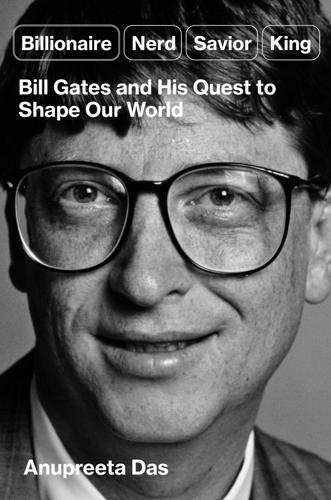
Billionaire, Nerd, Savior, King: Bill Gates and His Quest to Shape Our World
by
Anupreeta Das
Published 12 Aug 2024
In a New York Times opinion piece, Buffett called out the emerging industry of “philanthropic colonialism,” where acts of giving by the wealthy in the name of upliftment and improvement in the quality of life only perpetuate the existence of an inherently unequal system. Rather than push for systemic change, Buffett wrote, causes like microlending and financial literacy only bring people into a cycle of debt, interest, and repayment.23 In later discussions, including with the philosopher-rabbi of the “effective altruism” movement, William MacAskill, Buffett appeared to be directly critiquing the “data-driven” approach that was au courant in philanthropy, arguing for an approach that was based more on intuition than simply data. Additionally, the Gates Foundation has come in for criticism for its unquestioned belief in the power of technology to solve problems.
…
According to a 2016 study, the number of foundations in the region with more than $10 million in assets has doubled since 2000, with 28 percent of them founded in the last 10 years.33 The push in the Valley is to find “disruptive” solutions that have the most impact, the study said. But while the names of philanthropic endeavors run the gamut from venture philanthropy to effective altruism, the conceptual underpinnings don’t stray too far from the return-on-investment philosophy that has defined Gates’s approach. Traditionally, philanthropists set up foundations to handle their charitable contributions, which allows them to maintain a tax-free status as long as they donate 5 percent of their endowment to charity every year.
…
Green, who made his fortune in digital advertising and has an estimated net worth of more than $4 billion, calls his approach to giving “Dataphilanthropy,” seeking to fund and assess programs, the success of which can be verified by data. One of the biggest philanthropic ideas to take hold in the Valley in recent years, especially among younger billionaires, is “effective altruism,” which uses metrics and evidence to determine where a dollar will do the maximum good. Before his downfall, Sam Bankman-Fried, the founder of cryptocurrency exchange FTX, was one of the more high-profile so-called effective altruists, talking about his philosophy often in public and using his philanthropic activities to build FTX’s reputation.
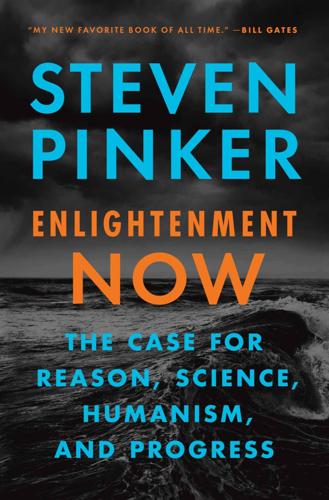
Enlightenment Now: The Case for Reason, Science, Humanism, and Progress
by
Steven Pinker
Published 13 Feb 2018
The specter of anomie and meaninglessness is probably exaggerated (according to studies of regions that have experimented with a guaranteed income), and it could be met with public jobs that markets won’t support and robots can’t do, or with new opportunities in meaningful volunteering and other forms of effective altruism.69 The net effect might be to reduce inequality, but that would be a side effect of raising everyone’s standard of living, particularly that of the economically vulnerable. * * * Income inequality, in sum, is not a counterexample to human progress, and we are not living in a dystopia of falling incomes that has reversed the centuries-long rise in prosperity.
…
Newspapers are supplementing shoe leather and punditry with statisticians and fact-checking squads.93 The cloak-and-dagger world of national intelligence is seeing farther into the future by using the Bayesian reasoning of superforecasters.94 Health care is being reshaped by evidence-based medicine (which should have been a redundant expression long ago).95 Psychotherapy has progressed from the couch and notebook to Feedback-Informed Treatment.96 In New York, and increasingly in other cities, violent crime has been reduced with the real-time data-crunching system called Compstat.97 The effort to aid the developing world is being guided by the Randomistas, economists who gather data from randomized trials to distinguish fashionable boondoggles from programs that actually improve people’s lives.98 Volunteering and charitable giving are being scrutinized by the Effective Altruism movement, which distinguishes altruistic acts that enhance the lives of beneficiaries from those that enhance the warm glow in benefactors.99 Sports has seen the advent of Moneyball, in which strategies and players are evaluated by statistical analysis rather than intuition and lore, allowing smarter teams to beat richer teams and giving fans endless new material for conversations over the hot stove.100 The blogosphere has spawned the Rationality Community, who urge people to be “less wrong” in their opinions by applying Bayesian reasoning and compensating for cognitive biases.101 And in the day-to-day functioning of governments, the application of behavioral insights (sometimes called Nudge) and evidence-based policy has wrung more social benefits out of fewer tax dollars.102 In area after area, the world has been getting more rational.
…
Though scientific literacy itself is not a cure for fallacious reasoning when it comes to politicized identity badges, most issues don’t start out that way, and everyone would be better off if they could think about them more scientifically. Movements that aim to spread scientific sophistication such as data journalism, Bayesian forecasting, evidence-based medicine and policy, real-time violence monitoring, and effective altruism have a vast potential to enhance human welfare. But an appreciation of their value has been slow to penetrate the culture.46 I asked my doctor whether the nutritional supplement he had recommended for my knee pain would really be effective. He replied, “Some of my patients say it works for them.”
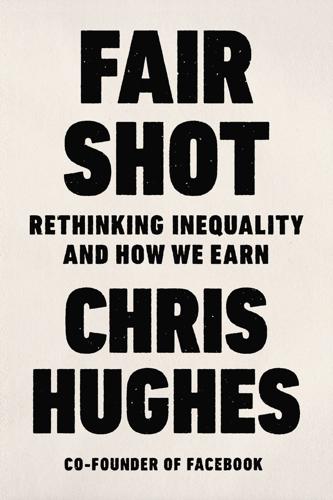
Fair Shot: Rethinking Inequality and How We Earn
by
Chris Hughes
Published 20 Feb 2018
Holden’s question of whether he could run his own “cash transfer” program, shorthand for just giving people cash directly, wasn’t just a passing curiosity. The GiveWell team and he felt a responsibility to investigate what it would mean to do exactly that, just as they ran down every single other way of giving to assess its impact. As GiveWell grew, it became an anchor for the “effective altruism” movement, a philanthropic approach moving away from pull-the-heartstrings inspiration and toward empirical, transparent, and rigorous evaluation of impact. The Princeton philosopher Peter Singer pioneered this utilitarian approach to philanthropy, and not without controversy. “By donating a relatively small amount of money, you could save a child’s life,” he writes in The Life You Can Save.
…
“Maybe it takes more than the amount needed to buy a pair of shoes—but we all spend money on things we don’t really need, whether on drinks, meals out, clothing, movies, concerts, vacations, new cars, or house renovation. Is it possible that by choosing to spend your money on such things rather than contributing to an aid agency, you are leaving a child to die, a child you could have saved?” Singer, GiveWell, and the effective altruism movement are in pursuit of a practical ethics that seeks not just to give away money, but to rethink our collective responsibility to one another and create a tradition in philanthropy focused on maximizing the return of each dollar invested. Holden’s post only came to tentative initial conclusions, but I marveled at the simplicity of the idea of giving cash directly.
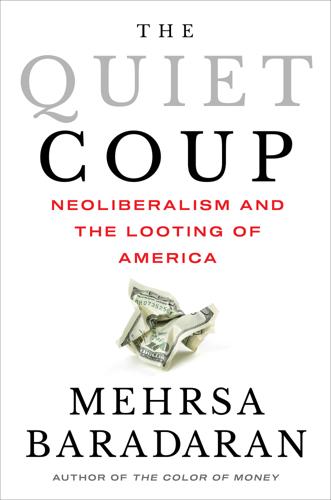
The Quiet Coup: Neoliberalism and the Looting of America
by
Mehrsa Baradaran
Published 7 May 2024
At its peak in October 2021, and before Bankman-Fried was convicted on several counts of fraud, FTX had a valuation of $32 billion, and the net worth of Bankman-Fried was $25 billion plus. For comparison, GM chairman and CEO James Roche’s peak salary was $822,000, which was controversial at the time.16 Bankman-Fried was a devotee of effective altruism, the philosophy developed by the Oxford philosopher Peter Singer and whose adherents made money in order to give it away. Effective altruism is the ultimate resignation to living in an unjust system. The process of making billions on Wall Street so you can donate billions to charities buying malaria nets enables an ethical bypassing of significant moral questions of justice: Is it just to live in a system where a twenty-year-old numbers guy is worth billions while half the world’s population needs nets to avoid a curable disease?
…
That skill is incredibly valuable indeed in a market that no longer works, but he is no more a genius than the clever Black kid who figures out how to make a profit selling drugs while evading the random enforcement of drug laws. In addition, while it may be argued that drugs are bad for people, the regulatory arbitrage FTX did—even before it was all revealed to be a fraud—was an end run around the law that was much more socially destructive. Effective altruism offers the winners of a rigged system a place to put their guilt—a mathematical equation in lieu of a much harder moral calculus—while allowing the public to avoid the harder questions of systemic justice. Bankman-Fried repeatedly pledged to donate 1 percent of FTX’s crypto exchange fees to charities.
…
Posner), 135, 159–60, 162–65, 167, 204, 297 Economic Consequences of the Peace (Keynes), xv–xvi economic epidemiology, 176 economic justice, xxxii, 10, 83, 342, 359 economic liberalism, xxv, 192 economic nationalism, 180 economics, xl, 64–65 Law and Economics vs., 161–62 (See also Law and Economics) legal theory of, 169 need to “protect,” 86 Nobel Prize in, 33 subservience of law to, 210 Economics Institute for Judges, 159 Economics of Discrimination, The (Becker), 19 Economics of Justice, The (R. Posner), 164 Economics of the Colour Bar, The (Hutt), 53 “Economics of Universal Education, The” (J. Buchanan and Nutter), 221 economies of scale, 353 Edgewood school district (Texas), 121–22 effective altruism, 344–45 efficient markets (efficient market hypothesis), xxxvi, 128, 158–59, 164, 166, 169–70, 172, 174, 175, 193, 195, 196, 210, 215, 224, 233–34, 236, 238, 256, 258, 264, 266, 271, 311, 329, 336, 340, 343 “Efficient Markets Need Guys Like Me” (Singer), 280 “Eight Days” (Stewart), 293 Einstein, Albert, 362, 380 Eisenhower, Dwight, and administration, 8, 15, 24, 25, 55, 75, 76, 111 elections, xxxii, 354.
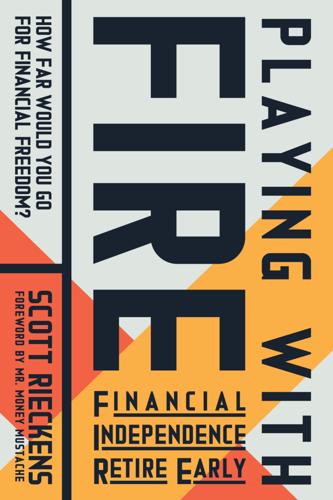
Playing With FIRE (Financial Independence Retire Early): How Far Would You Go for Financial Freedom?
by
Scott Rieckens
and
Mr. Money Mustache
Published 1 Jan 2019
Money Mustache: mrmoneymustache.com Mad Fientist: madfientist.com Frugalwoods: frugalwoods.com Physician on Fire: physicianonfire.com Early Retirement Extreme: earlyretirementextreme.com The Simple Path to Wealth: jlcollinsnh.com Millennial Revolution: millennial-revolution.com ChooseFI: choosefi.com Afford Anything: affordanything.com PLAYING WITH FIRE Inclusion on this list is based on 2018 Alexa rankings. 26 A couple of years before, I’d been excited about starting my own podcast project, which I’d dropped because I couldn’t find the time. If we could achieve FIRE, maybe I’d become a podcaster. Maybe I’d finally be able to donate my time to causes I believed in, like the Ocean Cleanup project or raising awareness of the Effective Altruism movement. Maybe Taylor would have the time to pursue some of her passions — like THE MILLION-DOLLAR IDEA volunteering at a senior center or starting a nonprofit helping single moms. I thought about getting to eat lunch with my wife and daughter more often. Waking up without a schedule. Spending winters in the Caribbean and summers in Lake Tahoe.
…
See also Barrett, Brad; Mendonsa, Jonathan Christmas gifts, 142–44, 150, 152–53 Chucky (author’s cousin), 139–41, 148, 183 club memberships, 15, 52, 61–62, 74 Coach Carson (blog), 109 coffee, 55–56, 163 college funds, 146 college savings accounts, 146 Collins, JL, 101, 109, 110–11, 114, 148 community, 121 commuting, 51 comparisons, 134 compound interest, 115–16, 145 compromise, 179 Confucius, 2 consumerism, 20, 84–85, 183–84 consumption, minimization of, 169 control, 120–21 Coronado (CA), 14; author’s departure from, 74, 82–85, 86–88, 137, 144; author’s extravagant lifestyle in, 12–18; author’s house hunt in, 160; author’s net worth in, 179–80; author’s relocation to, 14; author’s residence in, 75, 131; cost of living in, 75, 77, 79, 126, 131, 162; Taylor’s Take on leaving, 87–88 Costco, 55, 56 Craigslist, 74, 158 credit card debt, 133 credit card rewards, 51 Dallas (TX), 124–25 dating, 133, 173 debt, 7–8, 9, 45–46, 189 depreciation, 158 Deschutes National Forest, 157 dining out, 9, 12–13, 50, 52, 57–58, 144, 150, 168 Early Retirement Extreme (blog), 25, 26 eBay, 74 eco-friendliness, 68 economic recession (2008), 7, 69, 70 Ecuador FIRE retreat: author’s experience, 109–11, 116, 117–22; in author’s travel plan, 83; FIRE community at, 109, 117–19, 124, 171; frugality and attendance at, 119–20 Effective Altruism, 26 employment, choice of, 70 Encinitas (CA), 75 entertainment, 9, 50–51, 52, 53–54 entrepreneurs, 118–19 Eric (author’s childhood friend), 137, 138 expense cutting: author’s experience, 5–6, 183–84; author’s ten-step plan for, 50–51; cars, 60–61, 126, 129–30, 169, 188–89; club memberships, 61–62; daily expenses, 188; food expenses, 55–58, 150, 188–89; geo-arbitrage for, 93, 94; holiday gifts and, 142–44, 150, 152–53; housing, 126, 188–89; “sunk cost fallacy” and, 62–63 expenses: “Big Three,” 50; financial independence and, 149; “fun,” 50; keeping less than earnings, 126–29; “lifestyle creep” and, 9; medical, 45–46; retirement calculator using, 39–41; tracking, 51–55, 102, 188 extra-income opportunities, 51 families: large, and financial independence, 45–47; living with, 81, 92, 93 Ferriss, Tim, 18–21, 94, 142 1500 Days to Freedom (blog), 125 financial advisers, 114–15 financial independence, 146; FIRE Stories, 45–47; as self-defined, 149 “Financially Independent Retired Early: Flaws with the Philosophy?”
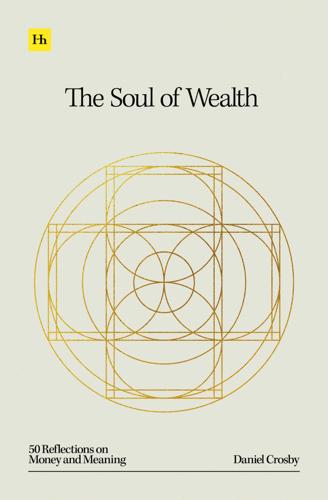
The Soul of Wealth
by
Daniel Crosby
Published 19 Sep 2024
Here’s what I mean: A portion of our family giving goes to what philanthropy experts refer to as “effective altruism,” which is charitable gifts with an extreme bang for the buck in terms of saving lives. Think mosquito nets in developing countries—inexpensive, but with enormous life-saving power. Another of our giving buckets is for things that make life worth living and are personally meaningful to us: Mental health efforts for me, and gifts to the arts for my wife, a talented visual artist and pianist. Consider how you can optimize a diversified portfolio of giving that encompasses personal effort, effective altruism, and causes that hold deep meaning to you.
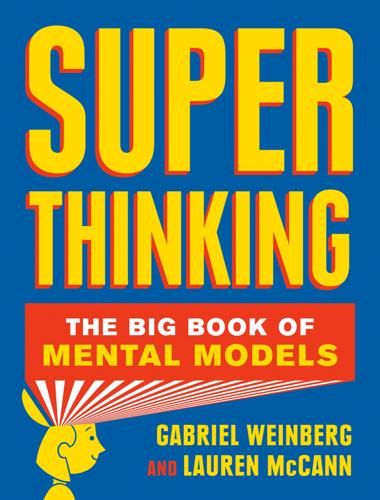
Super Thinking: The Big Book of Mental Models
by
Gabriel Weinberg
and
Lauren McCann
Published 17 Jun 2019
Which home renovations might most increase the value of your home in an upcoming sale or most increase its livability? Which activities will most help your kids in the future, or bring them the most joy? To which causes or charities would your cash contributions make the most difference (a mental model itself called effective altruism)? How much and what type of exercise do you need to do to get the most benefits in the least amount of time? Thinking about leverage helps you factor opportunity cost into your decision making. As a rule, the highest leverage activities have the lowest opportunity cost.
…
Department of, 267–68 delayed gratification, 87 deleveraging, 78–79 deliberate practice, 260–62, 264, 266 Democratic National Committee, 97 de-risking, 6–7, 10, 294 design debt, 56–57 design patterns, 92–93, 97, 226, 317 Detecting Lies and Deceit (Vrij), 13–14 deterrence, 231–32, 237, 238 Detroit, Mich., 41 Devil’s advocate position, 28–30, 202 diagrams, 192–93 dice, 170 Dick, Philip K., 201 diet, 1, 87, 102, 103, 130 Difficult Conversations (Stone, Patton, and Heen), 19 Diffusion of Innovation (Rogers), 116 diffusion of responsibility, 259 digital photography, 308–10 Dilbert, 140 diminishing returns, 81–83 diminishing utility, 81–82 dinosaurs, 103 diplomacy, 231 directly responsible individual (DRI), 258–59 disclosure law, 45 disconfirmation bias, 27 discounted cash flow, 85 discounting, hyperbolic, 87 discounting the future, 85–87 discount rate, 85–87, 180–82, 184, 185 discoveries, multiple, 291–92 Disney World, 96–97 dispersion, 147 disruptive innovations, 308, 310–11 distribution, see probability distributions distributive justice versus procedural justice, 224–25 divergent thinking, 203 diversity debt, 57 diversity of opinion, 205, 206, 255 divide and conquer, 96 divorce, 231, 305 Dollar Shave Club, 240 domino effect, 234–35, 237 done, calling something, 89–90 Donne, John, 209 don’t bring a knife to a gunfight, 241 drinking, 217, 218 drunk drivers, 157–58 drugs, 236 DuckDuckGo, 18, 32, 68, 258, 278 Dubner, Stephen, 44–45 Dunbar, Robin, 278 Dunbar’s number, 278 Dunning, David, 269 Dunning-Kruger effect, 268–70, 317 Dweck, Carol, 266, 267 early adopters, 116–17, 289, 290, 311–12 early majority, 116–17, 312 Eastman Kodak Company, 302–3, 308–10, 312 eBay, 119, 281, 282, 290 echo chambers, 18, 120 Ecker, Ullrich, 13 economies of scale, 95 Economist, 14–15 economy, 122, 125 inflation in, 179–80, 182–83 financial crisis of 2007/2008, 79, 120, 192, 271, 288 recessions in, 121–22 Edison, Thomas, 289, 292 education and schools, 224–25, 241, 296 expectations and, 267–68 mindsets and, 267 school ranking, 137 school start times, 110, 111, 130 selection bias and, 140 textbooks in, 262 see also college effective altruism, 80 egalitarian versus hierarchical, in organizational culture, 274 80/20 arrangements, 80–81, 83 Einstein, Albert, 8, 11 Eisenhower, Dwight, 72 Eisenhower Decision Matrix, 72–74, 89, 124, 125 elections, 206, 218, 233, 241, 271, 293, 299 Ellsberg, Michael, 220 email spam, 161, 192–93, 234 Emanuel, Rahm, 291 emotion, appeal to, 225, 226 emotional quotient (EQ), 250–52 empathy, 19, 21, 23 ruinous, 264 employee engagement survey, 140, 142 endgame, 242, 244 endorsements, 112, 220, 229 endpoints, 137 ends justify the means, 229 energy: activation, 112–13 potential, 111–12 engineering, 247 Enron, 228 entrepreneurs, 301 cargo cult, 316 entropy, 122–24 entry, barriers to, 305 environmental issues, 38 climate change, 42, 55, 56, 104, 105, 183, 192 EpiPen, 283 EQ (emotional quotient), 250–52 equilibrium, 193 Ericsson, K.
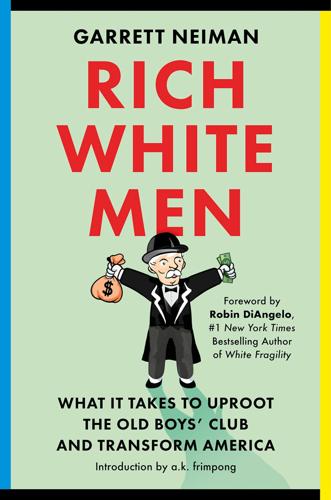
Rich White Men: What It Takes to Uproot the Old Boys' Club and Transform America
by
Garrett Neiman
Published 19 Jun 2023
In 1795, Thomas Paine, one of the intellectual architects of the American Revolution, proposed that a “groundrent” of fifteen pounds be paid to every individual upon turning twenty-one and ten pounds be paid every year after turning fifty. “Every person, rich or poor,” Paine argued, should receive the payments “to prevent invidious distinctions.”26 I first became interested in the idea of a universal basic income back in 2008 while I was a student at Stanford. Alex Berger, one of my classmates, had gotten involved in effective altruism, a philosophical and social movement that advocates for “using evidence and reason to figure out how to benefit others as much as possible, and taking action on that basis.”27 Alex told me about GiveDirectly, a nonprofit organization operating in East Africa—primarily Kenya, Uganda, and Rwanda—that helps families living in extreme poverty by making unconditional cash transfers to them via mobile phone.28 The program has expanded significantly: in 2019, GiveDirectly provided a total of $33 million to forty thousand households.29 Part of what has enabled GiveDirectly’s growth is that the organization measures its impact using randomized control trials.
…
Robert Muggah and Sameh Wahba, “How Reducing Inequality Will Make Our Cities Safer,” Sustainable Cities (blog), World Bank, March 2, 2022, https://blogs.worldbank.org/sustainablecities/how-reducing-inequality-will-make-our-cities-safer. 25. “Marcus Aurelius Quotes,” BrainyQuote, accessed September 18, 2022, https://www.brainyquote.com/quotes/marcus_aurelius_106264. 26. Thomas Paine, Agrarian Justice, in The Essential Thomas Paine, ed. John Dos Passos (Mineola, NY: Dover, 2008), 167. 27. William MacAskill, “Effective Altruism: Introduction,” Essays in Philosophy 18, no. 1 (2017): 1–5, https://doi.org/10.7710/1526-0569.1580. 28. “About GiveDirectly,” GiveDirectly, accessed September 18, 2022, https://www.givedirectly.org/about/. 29. “GiveDirectly,” GiveWell, accessed September 18, 2022, https://www.givewell.org/charities/give-directly. 30.
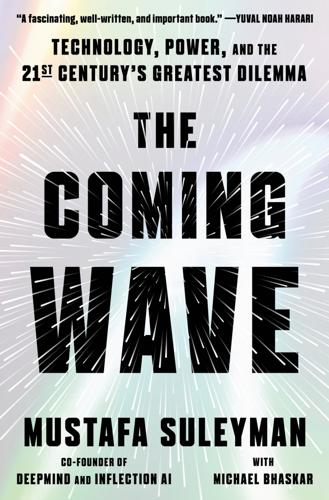
The Coming Wave: Technology, Power, and the Twenty-First Century's Greatest Dilemma
by
Mustafa Suleyman
Published 4 Sep 2023
GO TO NOTE REFERENCE IN TEXT The number of AI safety researchers Benaich and Hogarth, State of AI Report 2022. GO TO NOTE REFERENCE IN TEXT Given there are around For an estimate the number of AI researchers, see “What Is Effective Altruism?,” www.effectivealtruism.org/articles/introduction-to-effective-altruism#fn-15. GO TO NOTE REFERENCE IN TEXT The original Apollo missions NASA, “Benefits from Apollo: Giant Leaps in Technology,” NASA Facts, July 2004, www.nasa.gov/sites/default/files/80660main_ApolloFS.pdf. GO TO NOTE REFERENCE IN TEXT Giving off light Kevin M.
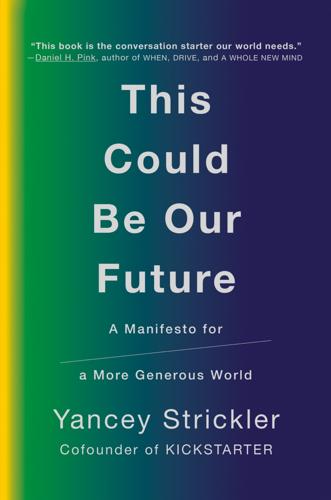
This Could Be Our Future: A Manifesto for a More Generous World
by
Yancey Strickler
Published 29 Oct 2019
his final user experience: Steve Jobs’s last words were reported by his sister, Mona Simpson (“A Sister’s Eulogy for Steve Jobs,” New York Times, October 30, 2011). ten years old in our species’ life span: Will MacAskill’s perspective on the age of humanity comes from a 2018 TED Talk called “What Are the Most Important Moral Problems of Our Time?” MacAskill is also cofounder of a movement called effective altruism, which seeks to maximize the altruistic impact people create in their lives. CHAPTER TWO: THE NO-LEFT-TURN RULE the world of retail planning: I came across the “no-left-turn rule” after reading about Robert Gibbs, an urban retail planner, in a 1994 article in The Atlantic. Gibbs told the reporter that “the traffic advisor is the one that has all the sway . . .
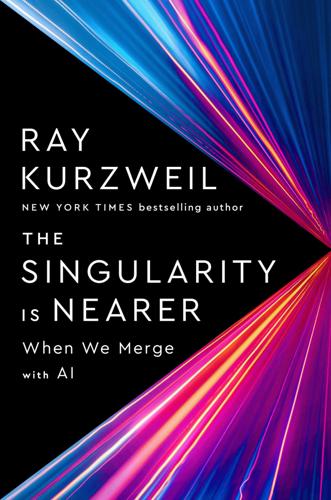
The Singularity Is Nearer: When We Merge with AI
by
Ray Kurzweil
Published 25 Jun 2024
BACK TO NOTE REFERENCE 113 For some clear and compelling summaries and visualizations of the global development and industrialization process, see Council on Foreign Relations, “Global Development Explained | World101,” CFR Education, YouTube video, June 18, 2019, https://www.youtube.com/watch?v=Po0o3Gk9FPQ; “Hans Rosling’s 200 Countries, 200 Years, 4 Minutes—the Joy of Stats—BBC Four,” BBC, YouTube video, November 26, 2010, https://www.youtube.com/watch?v=jbkSRLYSojo; “The History of International Development | Max Roser | EAGxOxford 2016,” Centre for Effective Altruism, YouTube video, April 16, 2017, https://www.youtube.com/watch?v=XbBn8OEqL4k; Max Roser, “The Short History of Global Living Conditions and Why It Matters That We Know It,” Our World in Data, accessed October 29, 2021, https://ourworldindata.org/a-history-of-global-living-conditions-in-5-charts; Bourguignon and Morrisson, “Inequality Among World Citizens: 1820–1992.”
…
ver=1553030594217. BACK TO NOTE REFERENCE 56 Evan Hubinger, “Clarifying Inner Alignment Terminology,” AI Alignment Forum, November 9, 2020, https://www.alignmentforum.org/posts/SzecSPYxqRa5GCaSF/clarifying-inner-alignment-terminology; Paul Christiano, “Current Work in AI Alignment,” Effective Altruism, accessed March 5, 2023, https://www.effectivealtruism.org/articles/paul-christiano-current-work-in-ai-alignment. BACK TO NOTE REFERENCE 57 Hubinger, “Clarifying Inner Alignment Terminology”; Christiano, “Current Work in AI Alignment.” BACK TO NOTE REFERENCE 58 For a relatively accessible deeper explanation of imitative generalization, see Beth Barnes, “Imitative Generalisation (AKA ‘Learning the Prior’),” AI Alignment Forum, January 9, 2021, https://www.alignmentforum.org/posts/JKj5Krff5oKMb8TjT/imitative-generalisation-aka-learning-the-prior-1.
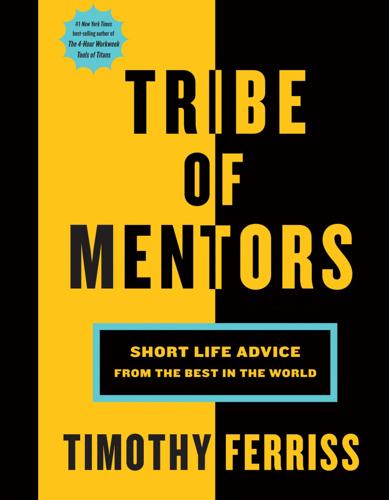
Tribe of Mentors: Short Life Advice From the Best in the World
by
Timothy Ferriss
Published 14 Jun 2017
As a European Poker Tour and World Series of Poker Champion with more than $3.5 million in tournament winnings, she is one of the best-known faces on the international poker circuit and has been nicknamed the “Iron Maiden.” Liv is a member of Team PokerStars Pro and is a four-time winner of European Female Player of the Year. Her biggest passion is science, and she holds a first class honors degree in physics with astrophysics from the University of Manchester. Liv is a strong supporter of the Effective Altruism movement, the philosophy of using evidence and rational decision-making to achieve the most good. In 2014, she co-founded Raising for Effective Giving, a fundraising organization that raises money for the world’s most cost-effective and globally impactful charities. * * * What is the book (or books) you’ve given most as a gift, and why?
…
See also Food(s); Nutrition at Aoki Bootcamp, 522 cutting out sugar, 405, 434 improving live through, 118, 434, 448 lactose intolerance, 406 low-carb, 480–81 meat industry, 295–96 misinformation on, 488 no-carb, 508 slow-carb, 448 Whole30, 295 DigiCash, 507 Dillard, Annie, 375 Diller, Barry, 206 Dim Mak Collection, 519 Dim Mak Records, 519, 520 Disney, Walt, 93 Disraeli, Benjamin, 210 Disruptive technology, 222–23, 295, 346 Doctor, Ken, 437 Dogspotting, 101–2 Douglas, Michael, 328 Douglass, Frederick, 210 Dropbox, 456 Drucker, Peter, 140, 205, 458 Duffin, Chris, 317 Duke, Annie, 171–74 Duncan, Graham, 56–63 Duolingo, 250 Duterimbere, 324 Dyson, Esther, 222, 243–45 E East Rock Capital, 56 eBay, 92 Ebroji, 79 Echelon Front, 536 Education Networks of America, Inc., 289 EDventure Holdings, 243 Effective Altruism, 300 Efferding, Mark, 318 Efferding, Stan, 318 Egg boxing, 516 Einstein, Albert, 51, 232, 356, 375, 515 Ek, Daniel, 286–88 Eligible, 243 Elizabeth Arden, 87 Ellison, Larry, 446 El Rey Network, 541, 544 Emerson, Ralph Waldo, 21, 123, 178, 253, 528–29 Eminem, 239 Emotional intelligence, 557–58 Endeavor Global, 349–51 Enlightenment Intensive, 343 Enneagram, 456–57 Environmental Institute for Golf, 283 Epicurus, 418 Epinions.com, 31 Epitaph Test, 47, 49 Erwin, Brian, 221 Ethereum, 153, 501 Évora, Cesária, 12 Exercise, 493, 522.
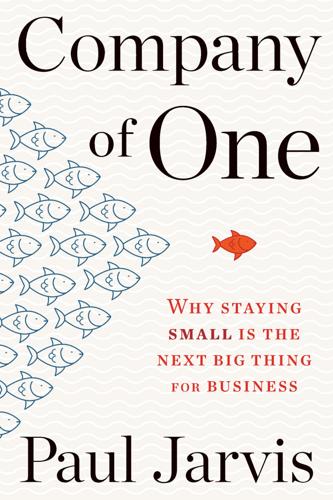
Company of One: Why Staying Small Is the Next Big Thing for Business
by
Paul Jarvis
Published 1 Jan 2019
Vallerand, “On the Psychology of Passion: In Search of What Makes People’s Lives Most Worth Living,” January 2007, https://www.researchgate.net/publication/228347175_On_the_Psychology_of_Passion_In_Search_of_What_Makes_People’s_Lives_Most_Worth_Living. 82 following your passion is fundamentally flawed: Cal Newport, So Good They Can’t Ignore You: Why Skills Trump Passion in the Quest for Work You Love (New York: Grand Central Publishing, 2012), xviii. engaging work helps you develop passion: William MacAskill, Doing Good Better: How Effective Altruism Can Help You Make a Difference (New York: Avery, 2015), 147–178. 86 not be just a job but an adventure: Jeffrey Jensen Arnett and Elizabeth Fishel, “Is 30 the New 20 for Young Adults?” AARP, Washington, D.C., November 1, 2010, http://www.aarp.org/relationships/parenting/info-10-2010/emerging_adulthood_thirtysomethings.html. 86always winners: M.
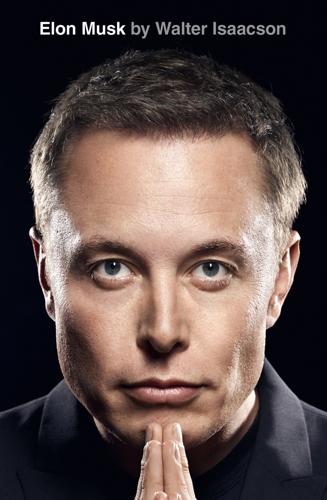
Elon Musk
by
Walter Isaacson
Published 11 Sep 2023
“If you agree it’s important for a democracy, then I thought it was worth making an investment in it.” One person who was eager to be in the deal was Sam Bankman-Fried, the soon-to-be-disgraced founder of the cryptocurrency exchange FTX, who believed that Twitter could be rebuilt on the blockchain. He claimed to be a supporter of effective altruism, and the founder of that movement, William MacAskill, texted Musk to try to arrange a meeting. So did Michael Grimes, Musk’s primary banker at Morgan Stanley, who was working to put together the financing. “I’m backlogged with a mountain of critical work matters,” Musk texted Grimes. “ls this urgent?”
…
See Starlink Compaq Computer, 66 computer programming EM’s childhood interest in, 29, 33–34 EM’s college years and, 50 EM’s Silicon Valley internship and, 55–56 See also Zip2 “Computing Machinery and Intelligence” (Turing), 595 Confinity, 76 Cook, Tim, 261, 559 Corcoran, Kyle, Twitter acquisition and, 511 COVID-19 pandemic conspiracy theories and, 578–80 EM’s reconciliation with Kimbal and, 346 EM’s resistance to authority and, 379, 417–18 Tesla and, 408, 417–18, 441 Twitter content moderation and, 572–73 Cramer, Jim, 293 Crawford, Esther, 509, 540 Crider, Johnna, 290 Culture, The novels (Banks), 400 Cyberpunk video games, 310, 318, 485 Daimler, 193 Davenport, Christian, 357 David, Larry, 491 Davis, Steve The Boring Company and, 257, 258 EM’s management of Twitter and, 547, 583 flamethrowing and, 299, 496 Model 3 production surge and, 271 Twitter server move and, 584, 585 DeepMind, 240–41, 600, 601, 605 Deese, Brian, 421 Demolition Man, 591 Denholm, Robyn, 580 Depp, Johnny, 263 Dharamsi, Tejas, 514 DiCaprio, Leonardo, 381 Diez, Shana, 478, 608 Diplomacy, 46 Diversity Myth: Multiculturalism and Political Intolerance on Campus, The (Thiel and Musk), 424 Dojo, 244, 394, 397, 487, 596 Dontchev, Kiko, 347, 349–51, 362, 385 Doohan, James, 176 Dorsey, Jack, 440, 444, 461, 510, 567 Dow, Brian, 271, 369, 370–71, 372, 373–74 Downey, Robert, Jr., 142 Drexler, Mickey, 143 Dreyer, Lauren, 428–29 Drori, Ze’ev, 167 Duan, Phil, 499 Dungeons & Dragons, 32–33, 50, 309 Durban, Egon, 492 Dyer, Deborah Anne (Skin), 344 eBay PayPal and, 85, 86–87 X.com and, 76, 77, 78–79 Eberhard, Martin, 124, 162 component outsourcing and, 132–33, 156 departure of, 163–64 development mule and, 133 electric car ideas, 127–28, 129, 130 EM’s attacks on, 164–65 EM’s design input and, 136–37 EM’s enmity and, 164, 192 EM’s sensitivity about credit and, 139, 141–42 legal settlement with EM, 164 Roadster launch and, 140–41, 143 Roadster production costs and, 160 Tesla financial issues and, 161, 163 Tesla founding and, 130, 133, 139, 164 Tesla leadership conflicts and, 134, 137, 139–40 economic crisis (2007–2008), 179–81, 193 Edgett, Sean, 513 effective altruism movement, 460 Ehrenpreis, Ira, 167 Einhorn, David, 278 Ekenstam, Felix, 425 Elden Ring, 7, 455, 588 electric cars AC Propulsion and, 126–27, 129 auto industry abandonment of, 193 Biden and, 420–21 Eberhard and, 127–28, 129, 130 EM’s college interest in, 51, 55, 57–58 Rosen meeting and, 125–26 Tesla Motors and, 127–28, 129–30 tzero prototype, 126–27, 128 See also Tesla Ellison, Larry, 7, 218, 451, 459–60, 461, 558–59, 590–91 Elluswamy, Ashok, 596–97, 598 Emanuel, Ari, 488, 491, 494, 497, 554 EM’s management of Twitter advertiser boycotts and, 537–38 advertisers and, 533–35, 537–38, 547, 559–60, 580 Apple and, 559–60 content moderation and, 524–31, 537, 554, 566, 567, 572–73, 574–77 desk-siding, 552 EM’s demon mode and, 537–39 EM’s management style and, 367 EM’s personality and, 534 EM’s stress and, 544–45, 547–48 engineering integration and, 79, 494, 557 financial issues and, 541 firings and, 509, 510, 521–22, 540, 547–50, 555–57 government agencies and, 568, 572 hardcore culture and, 220, 349, 508, 522, 547, 550–51 hardcore opt-in, 550–51, 556 impulsive tweets and, 533, 534, 577–78 in-person vs. remote work, 519, 541–42 journalist suspensions, 575–77 layoff reviews, 515, 516–19, 536, 548–49 product changes, 514 product review, 508–9 risk and, 522, 555 Roth departure, 542–44 server move, 581, 582–86, 588–90, 598 survival, 558 top management question, 520–21 troll/bot campaign and, 530–31 Twitter Blue, 539–40, 542–43, 547, 613 Twitter Files, 529, 566–68, 569–73, 575, 576, 579 visibility filtering, 529, 571, 572–73, 575 X.com and, 87, 507, 509, 560 Yaccarino as CEO, 613 Endeavor, 491 Engelbart, Doug, 399 Epstein, Jeffrey, 296 Fabricant, James, 173, 174 Falcon 1 launch attempts EM’s stress and, 5, 173, 179 first attempt (Mar. 2006), 150–52 second attempt (Mar. 2007), 153–54 third attempt (Aug. 2008), 175, 176–77, 197–98 fourth attempt (Sept. 2008), 184–88, 206 Kimbal’s support and, 150, 151, 186–87, 300 Obama administration and, 206 Farooq, Navaid, 44, 235 EM’s friendship with, 45 on EM’s grief, 103–4 EM’s marriage to Justine and, 71–72 EM’s marriage to Talulah and, 215 strategy games and, 46, 47, 51 Twitter and, 455–56 Zip2 and, 62 Farooq, Nyame, 61 Fath, Joe, 291, 334 Fauci, Anthony, 577–78, 587 Favreau, Jon, 142 Federal Aviation Administration (FAA), 351–52, 360, 362 Federal Communications Commission (FCC), 355–56 Fedorov, Mykhailo, 428, 431, 433, 434 Felsenthal, Ed, 416 Ferguson, Niall, 430 Fermi, Enrico, 93 Fermi’s Paradox, 93 Fibonacci Sequence, 37 Field, Doug, 301 Fisker, Henrik, 196, 197 Flesh without Blood, 306 Fletcher, Winnifred.
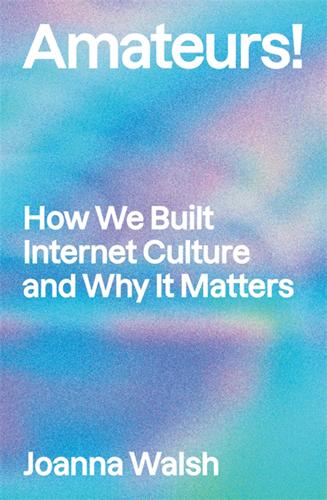
Amateurs!: How We Built Internet Culture and Why It Matters
by
Joanna Walsh
Published 22 Sep 2025
Fredric Jameson warns of a pre-AI postmodern ‘image addiction which, by transforming the past into visual mirages, 126stereotypes or texts, effectively abolishes any practical sense of the future and of the collective project, thereby abandoning the thinking of future change to fantasies of sheer catastrophe’.31 Timnit Gebru sees these fantasies recur with disturbing political consequences she identifies using the acronym she developed with Émile P. Torres: TESCREAL – transhumanism, extropianism, singularitarianism, cosmism, rationalism, effective altruism and longtermism – all alt-right ideologies predicting catastrophe or promising utopias via the embrace of technological singularity. These theories are prompted by a fear of the vulnerability of the human body and the temporary nature of wealth: of physical and material mortality. AI art is about having a what if thought.
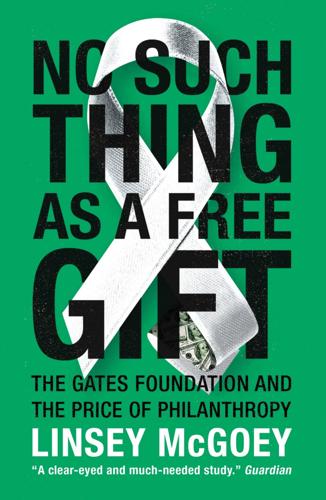
No Such Thing as a Free Gift: The Gates Foundation and the Price of Philanthropy
by
Linsey McGoey
Published 14 Apr 2015
Teacher Evaluation Redesign Bogs Down’, Washington Post, 5 June 2011. 54Caroline Preston, ‘Gates Reorganizes Global Staff and Listens to School Critics’, Chronicle of Philanthropy, 16 October 2012. 55Valerie Strauss, ‘Gates Foundation Backs Two-Year Delay in Linking Common Core to Teacher Evaluation, Student Promotion,’ Washington Post, 10 June 2014. 56Paul Wells, ‘Why Bill Gates is Stephen Harper’s Favourite American’, Maclean’s, 4 March 2015. 57Peter Singer, ‘The Why and How of Effective Altruism’ (TED talk, March 2013), ted.com. 58Valerie Strauss, ‘An Educator Challenges the Gates Foundation,’ Washington Post, 8 October 2010. See also Anthony Cody, The Educator and the Oligarch: A Teacher Challenges the Gates Foundation (New York: Garn Press, 2014). 59I first make this point in Linsey McGoey, ‘Philanthrocapitalism and Its Critics’, Poetics, vol. 40, 185–99, drawing on work by Michael Power and James Ferguson.
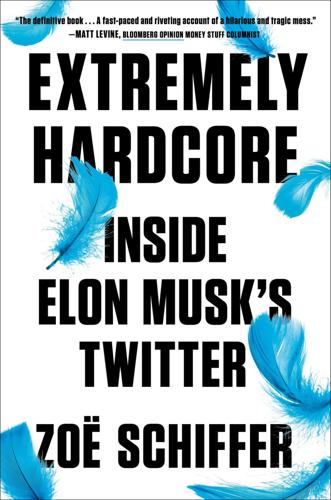
Extremely Hardcore: Inside Elon Musk's Twitter
by
Zoë Schiffer
Published 13 Feb 2024
“Do you believe Twitter rigorously adheres to this principle? The consequences of this poll will be important. Please vote carefully.” More than two million accounts voted, with 70 percent saying no. Musk’s free speech poll piqued the interest of William MacAskill, a Scottish philosopher and architect of the effective altruism movement, which takes a utilitarian approach to philanthropy in an effort to maximize the benefit of every donation. “I’m not sure what’s on your mind, but my collaborator Sam Bankman-Fried has for a while been potentially interested in purchasing [Twitter] and then making it better for the world,” MacAskill said, referencing the billionaire wunderkind behind FTX, then the world’s second-biggest cryptocurrency exchange.

The Uninhabitable Earth: Life After Warming
by
David Wallace-Wells
Published 19 Feb 2019
This is how the forces that unleashed climate change—namely, “the unchecked wisdom of the market”—were nevertheless presented as the forces that would save the planet from its ravages. It is how “philanthrocapitalism,” which seeks profits alongside human benefits, has replaced the loss-leader model of moral philanthropy among the very rich; how the winners of our increasingly winner-take-all tournament economy use philanthropy to buttress their own status; how “effective altruism,” which measures even not-for-profit charity by metrics of return borrowed from finance, has transformed the culture of giving well beyond the billionaire class; and how the “moral economy,” a rhetorical wedge that once expressed a radical critique of capitalism, became the calling card of do-gooder capitalists like Bill Gates.
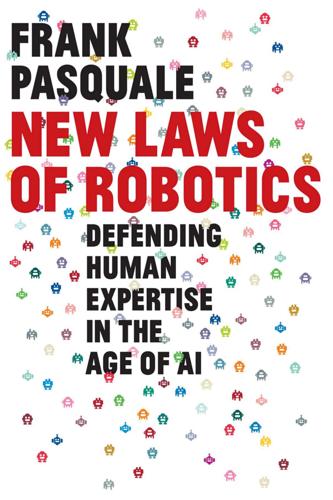
New Laws of Robotics: Defending Human Expertise in the Age of AI
by
Frank Pasquale
Published 14 May 2020
Adam’s inhuman abridgment of literary genres reflects a broader reductionism inherent in any effort to discipline persons into seeing machines as their equals.32 In the novel, Adam’s near super powers—at financial trading, fighting, sly maneuvering through a human world it has only known for months—are balanced by a quest for moral certainty. As the imagined Turing in the novel states, “The overpowering drive in these machines is to draw inferences of their own and shape themselves accordingly.”33 As it does so, Adam becomes impeccably eleemosynary.34 Reflecting the logic of the relentlessly utilitarian “effective altruism” movement, it decides one day to donate its gains from day trading to charities and reports Charlie’s income to tax authorities. Upon hearing this, Charlie begins to rue “our cognitive readiness to welcome a machine across the boundary between ‘it’ and ‘him.’ ”35 Miranda tries to reason with Adam.
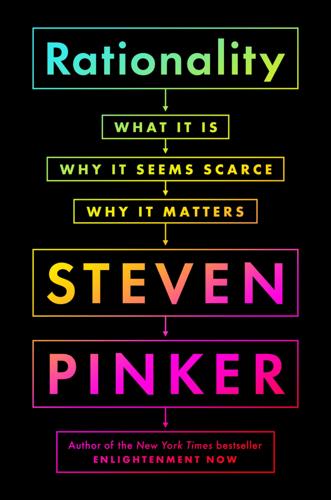
Rationality: What It Is, Why It Seems Scarce, Why It Matters
by
Steven Pinker
Published 14 Oct 2021
Lyttleton, J. 2020. Social media is determined to slow the spread of conspiracy theories like QAnon. Can they? Millennial Source, Oct. 28. https://themilsource.com/2020/10/28/social-media-determined-to-slow-spread-conspiracy-theories-like-qanon-can-they/. MacAskill, W. 2015. Doing good better: Effective altruism and how you can make a difference. New York: Penguin. Maines, R. 2007. Why are women crowding into schools of veterinary medicine but are not lining up to become engineers? Cornell Chronicle, June 12. https://news.cornell.edu/stories/2007/06/why-women-become-veterinarians-not-engineers.
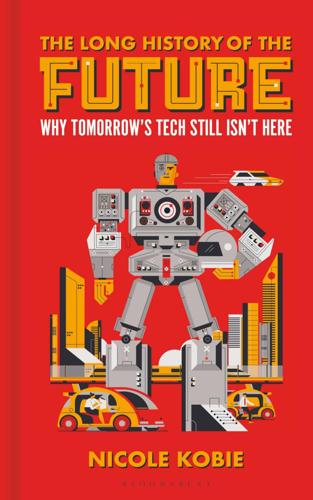
The Long History of the Future: Why Tomorrow's Technology Still Isn't Here
by
Nicole Kobie
Published 3 Jul 2024
It goes like this: ask an AGI to make loads of paper clips, and it may choose to wipe out humans or otherwise wreak havoc to achieve its goal as efficiently as possible. The paper clip problem was created by Swedish philosopher Nick Bostrom, who is widely considered the ‘father of longtermism’, a controversial spin-off from effective altruism that values the lives of future people as much as those around today. Considering the future impact of our actions certainly sounds wise, but practically it’s a way to ignore challenges facing the world today. That belief essentially means we should deprioritise challenges now in favour of avoiding long-term existential risk very far in the future – because if we go extinct hundreds of years in the future, there will be many, many would-have-been people who won’t get to be happy.
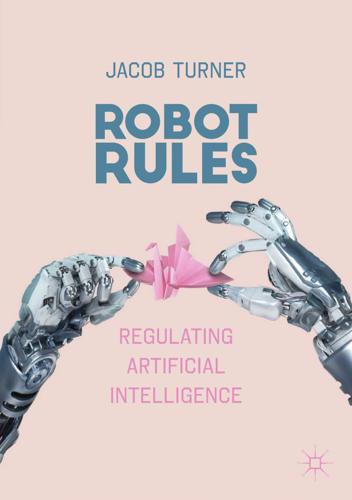
Robot Rules: Regulating Artificial Intelligence
by
Jacob Turner
Published 29 Oct 2018
Eerdmans Publishing Co, 1996). 108Though one academic has even gone as far as writing a “message to future AI”, suggesting various instrumental reasons why a superintelligent entity (which might one day come to read the paper) ought not to destroy humanity: Alexey Turchin, “Message to Any Future AI: ‘There are Several Instrumental Reasons Why Exterminating Humanity Is Not in Your Interest’”, http://effective-altruism.com/ea/1hj/message_to_any_future_ai_there_are_several/, accessed 1 June 2018. 109Dylan Hadfield-Menell, Anca Dragan, Pieter Abbeel, and Stuart Russell, “The Off-Switch Game”, arXiv preprint arXiv:1611.08219 (2016), 1. 110The exact location is a secret guarded by the US Forest Service. 111Roslin Institute, “The Life of Dolly”, University of Edinburgh Centre for Regenerative Medecine, http://dolly.roslin.ed.ac.uk/facts/the-life-of-dolly/index.html, accessed 1 June 2018. 112Art. 20a, Basic Law of the Federal Republic of Germany.
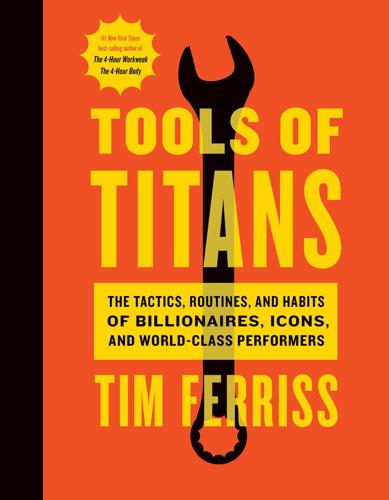
Tools of Titans: The Tactics, Routines, and Habits of Billionaires, Icons, and World-Class Performers
by
Timothy Ferriss
Published 6 Dec 2016
” * * * Will MacAskill Will MacAskill (TW: @willmacaskill, williammacaskill.com) is an associate professor of philosophy at Lincoln College, University of Oxford. Just 29 years old, he is likely the youngest associate (i.e., tenured) professor of philosophy in the world. Will is the author of Doing Good Better and a co-founder of the “effective altruism” movement. He has pledged to donate everything he earns over ~$36K per year to whatever charities he believes will be most effective. He has also co-founded two well-known nonprofits: 80,000 Hours, which provides research and advice on how you can best make a difference through your career, and Giving What We Can, which encourages people to commit to give at least 10% of their income to the most effective charities.
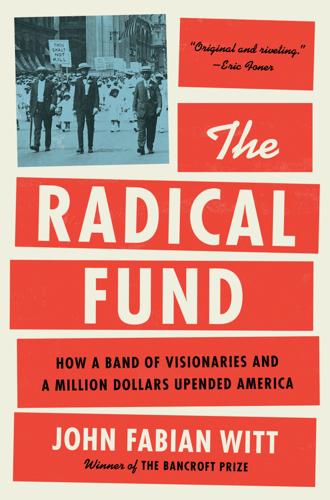
The Radical Fund: How a Band of Visionaries and a Million Dollars Upended America
by
John Fabian Witt
Published 14 Oct 2025
Wealthy donors like the Coors family, the Koch brothers, Richard Mellon Scaife, John Olin, the Bradley Foundation, and the DeVos Foundation put tax-preferred foundation money toward efforts to undermine precisely the kinds of labor union gains, civil rights protections, and institutions of democratic public opinion for which the Fund and its beneficiaries fought.14 Just as in the 1920s, many of the winners in our lopsided economy today have turned their wealth to bending the world toward their own vision of the good. Pursuing buzzy new models like “philanthrocapitalism” or “effective altruism,” the wealthy have already begun to deliver basic public goods that were long, though not always, the province of government. From space exploration to public education, philanthropy and private enterprise sometimes seem to be bidding to displace democracy altogether. Our twenty-first-century world of robber baron donors cries out anew for limits on the influence of the moneyed few, limits of the kind Frank Walsh and the Commission on Industrial Relations proposed after the Ludlow massacre.
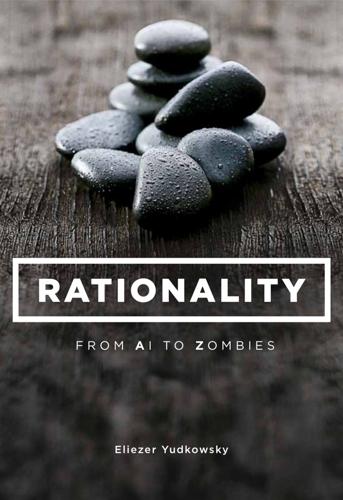
Rationality: From AI to Zombies
by
Eliezer Yudkowsky
Published 11 Mar 2015
Though Yudkowsky was moved to write these essays by his own philosophical mistakes and professional difficulties in AI theory, the resultant material has proven useful to a much wider audience. The original blog posts inspired the growth of Less Wrong, a community of intellectuals and life hackers with shared interests in cognitive science, computer science, and philosophy. Yudkowsky and other writers on Less Wrong have helped seed the effective altruism movement, a vibrant and audacious effort to identify the most high-impact humanitarian charities and causes. These writings also sparked the establishment of the Center for Applied Rationality, a nonprofit organization that attempts to translate results from the science of rationality into useable techniques for self-improvement.